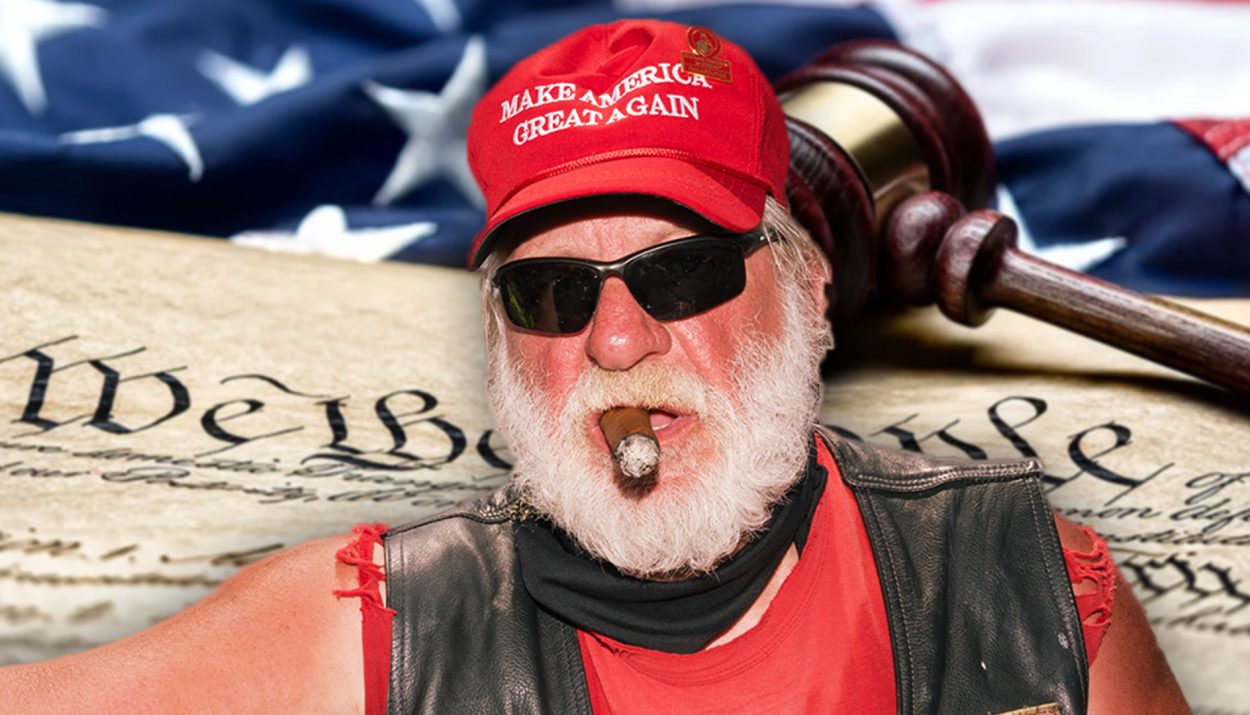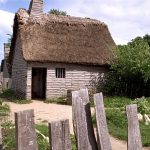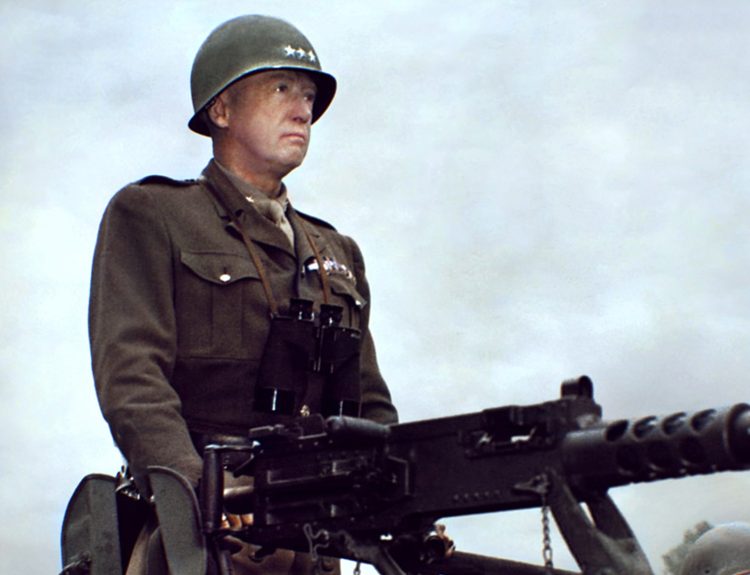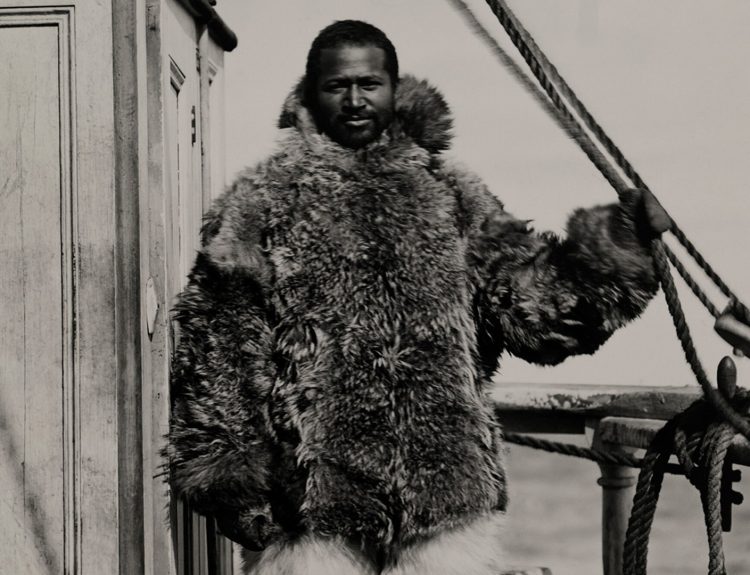The early days of American history saw several wars that eventually culminated in the Declaration of Independence. In 1775 – 1800 the scene was quite intricate. Today we’re going to test how well you know about the time when America was just forging to become a great nation.
The quiz is designed to enlighten you about the rich history and unforgettable struggles of the people of America. Let us know in the comments how many you got right!
Question 1: When did the American Revolutionary War start?
a) 1776
b) 1775
c) 1773
d) 1770
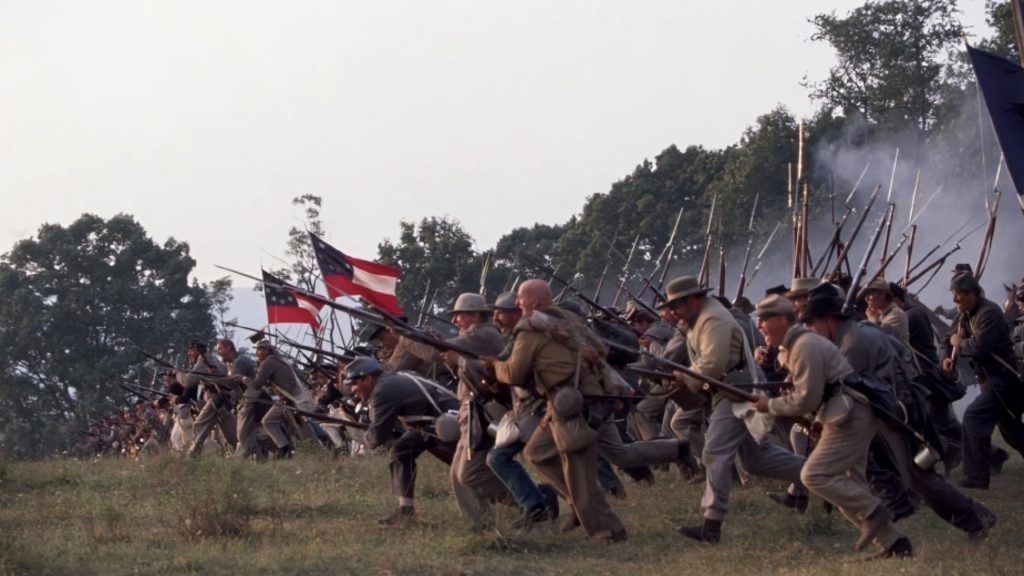
Answer 1: When did the American Revolutionary War start?
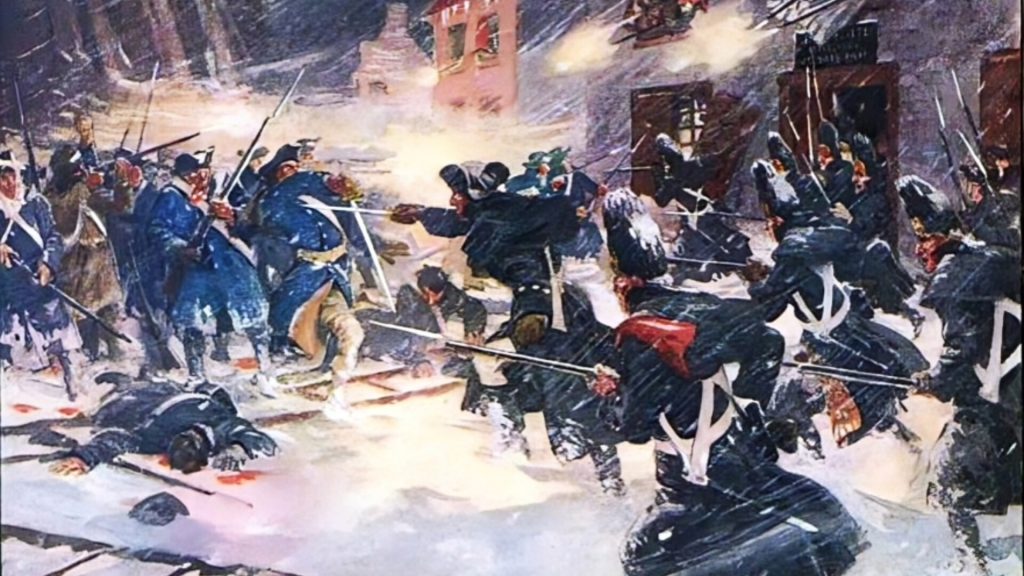
b) 1775
Our first question was quite easy and hopefully, every one of you got this right. The Revolutionary War started in the year of 1775. This was the year when the colonies of America parted ways with the British authorities. The seed of freedom was planted into the hearts of people all over America.
Question 2: What is the name of the main author of the Declaration of Independence?
a) John Adams
b) George Washington
c) Thomas Jefferson
d) Benjamin Franklin
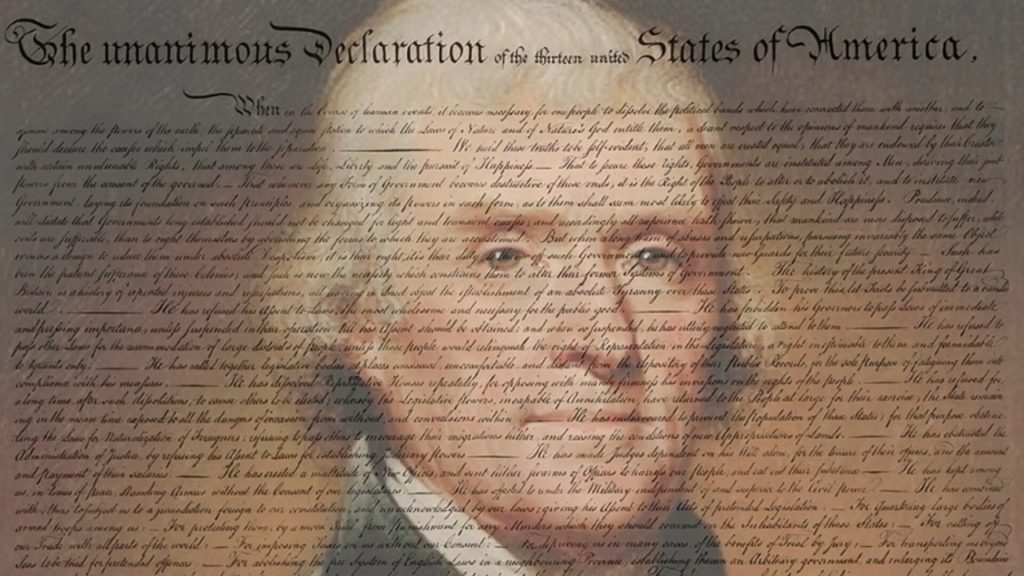
Answer 2: What is the name of the main author of the Declaration of Independence?
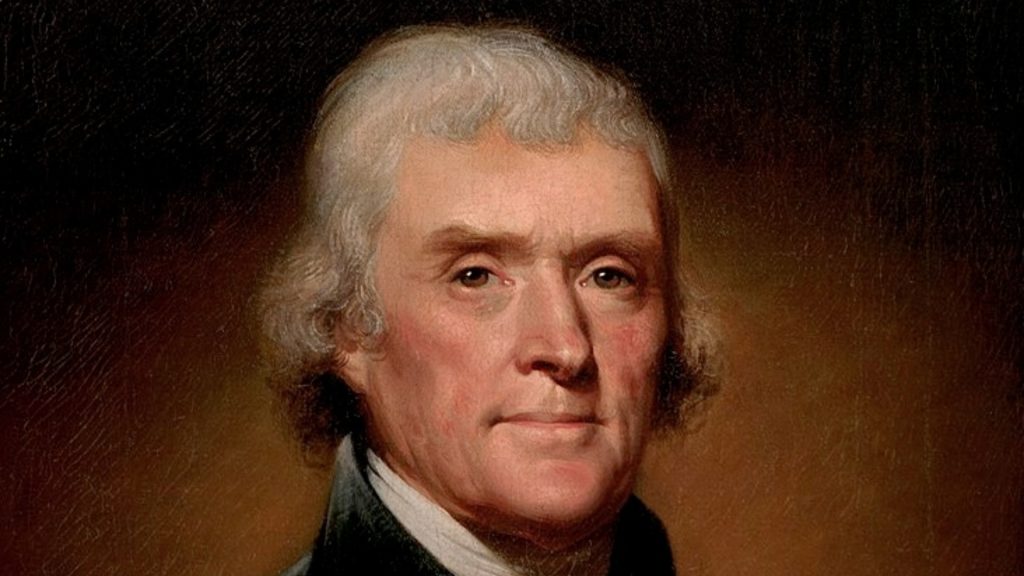
c) Thomas Jefferson
Yet another easy one. The name has basically been pushed down our throats when we were young by countless mentions of Thomas Jefferson in the textbooks. He was an articulate person who was tasked to write the seminal documents and he did the job flawlessly.
Question 3: Which battle is considered the beginning of the American Revolutionary War?
a) Battle of Yorktown
b) Battle of Saratoga
c) Battle of Bunker Hill
d) Battles of Lexington and Concord
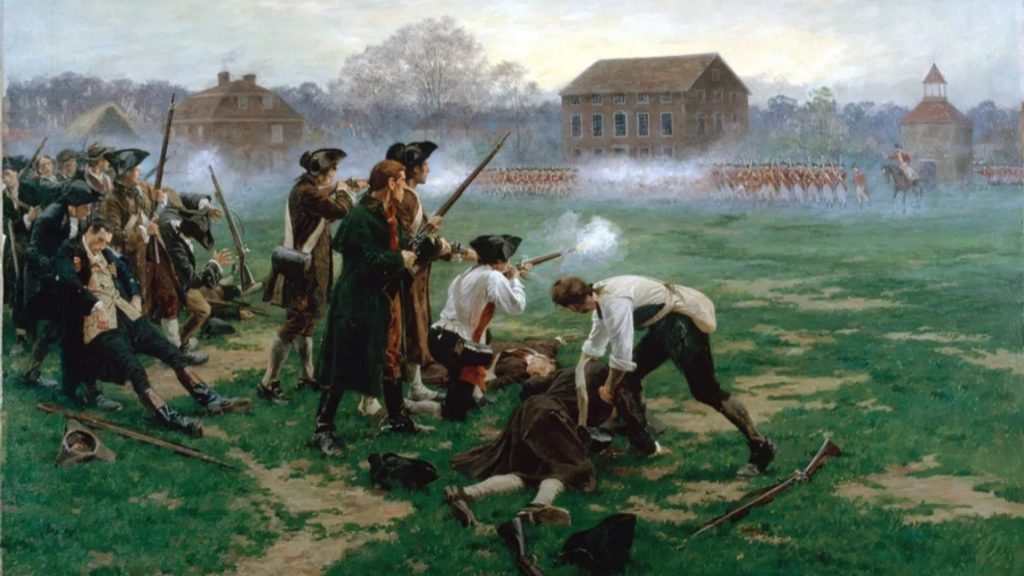
Answer 3: Which battle is considered to be the beginning of the American Revolutionary War?
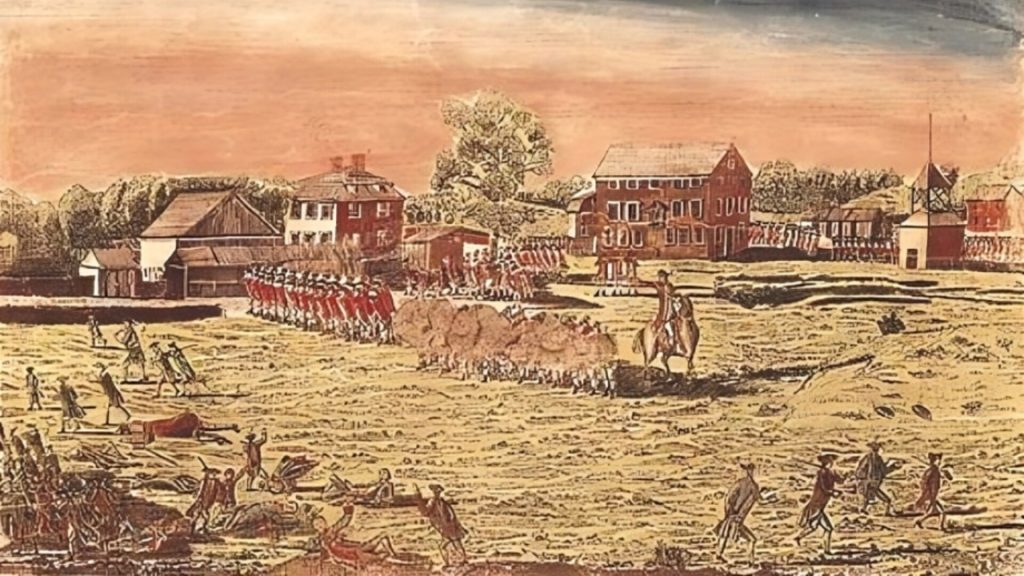
d) Battles of Lexington and Concord
This one is tricky and sure to fumble up even the wisest of souls. All the answers look equally convincing, don’t they? You need to have a sharp mind to recall the vicious fights between the soldiers of Great Britain and America.
Question 4: Which one of these dates marks the adoption of the Declaration of Independence?
a) September 3, 1775
b) April 19, 1775
c) July 4, 1776
d) December 25, 1776
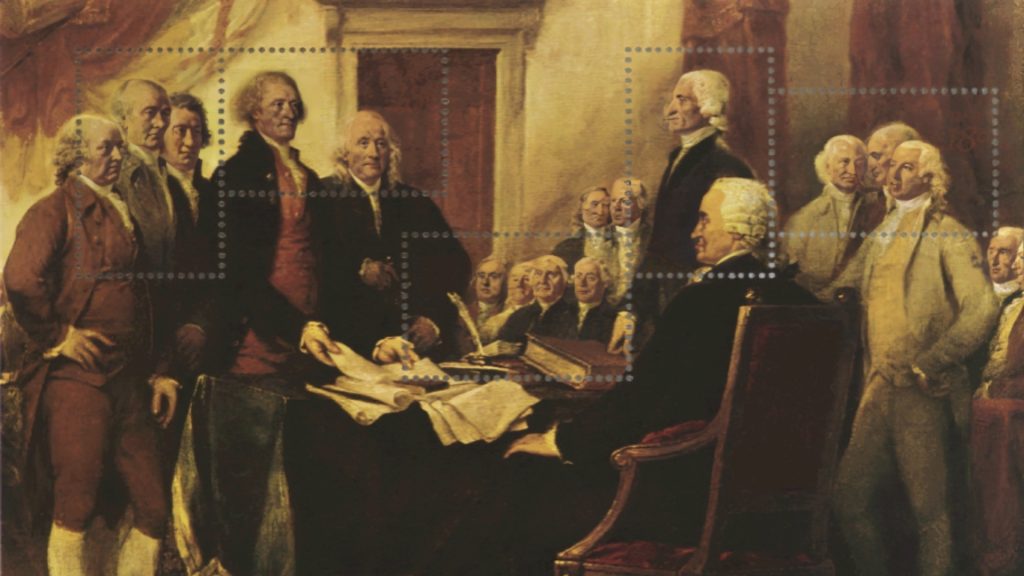
Answer 4: Which one of these dates marks the adoption of the Declaration of Independence?
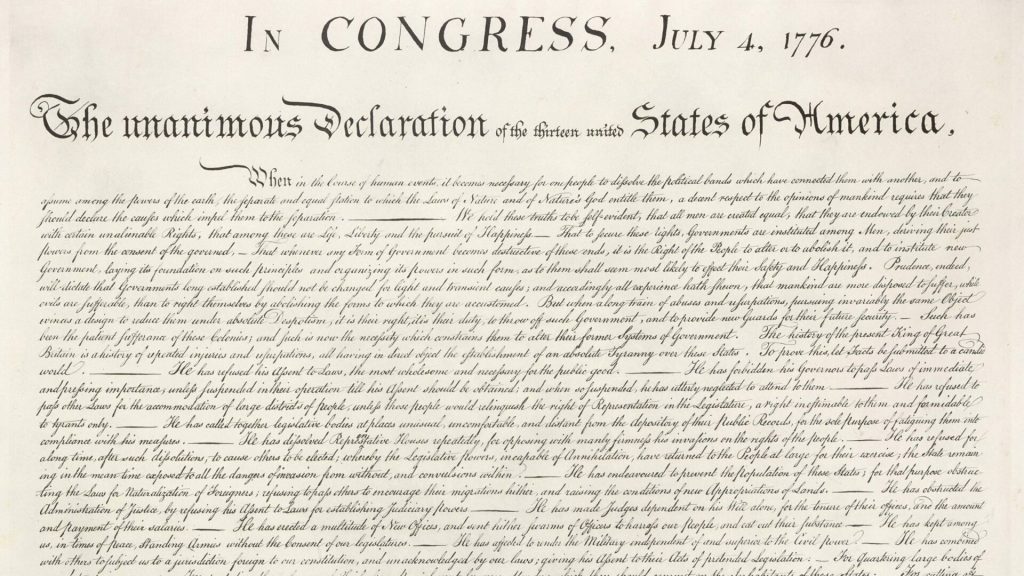
c) July 4, 1776.
I assume that you are definitely quick to answer this one. Because of the widespread release of numerous historical movies, the date has been forever etched in the back of our minds and is going to stay there for eternity.
Question 5: Which nation was the first to acknowledge the United States of America as an independent country?
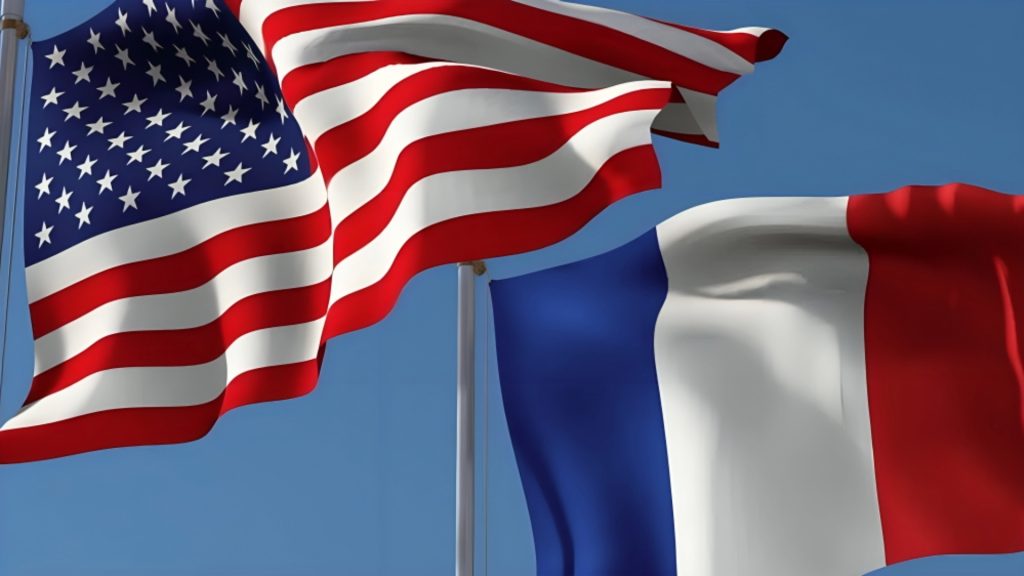
a) Spain
b) France
c) Great Britain
d) The Netherlands
Answer 5: Which nation was the first to acknowledge the United States of America as an independent country?
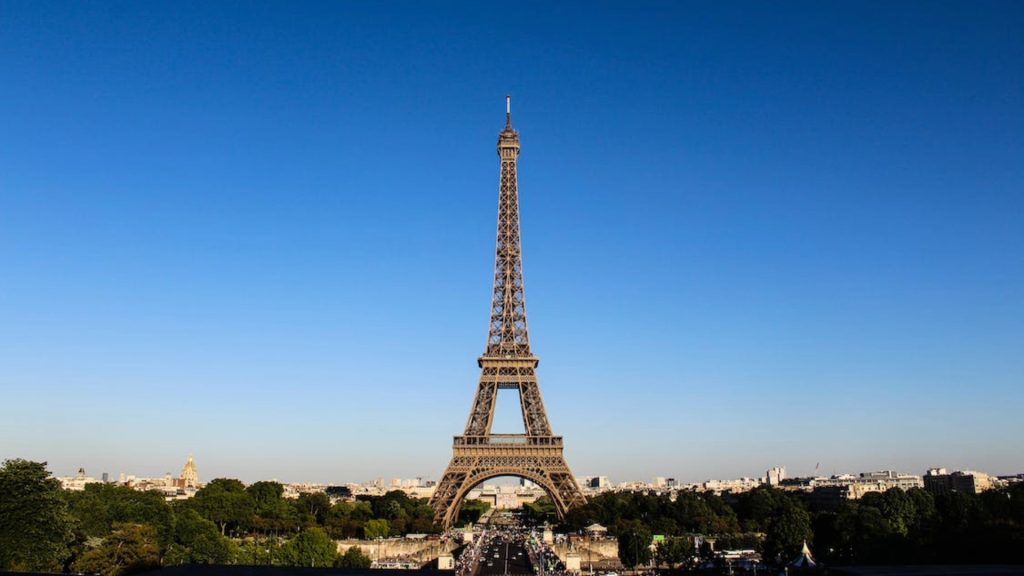
b) France
At the beginning of independence, America was still a relatively unknown country. To shed the spotlight internationally, France came forward in 1778 and made countries all around the world acknowledge the existence of a country that would soon become a powerhouse.
Question 6: What is the name of the appointed commander-in-chief of the Continental Army?
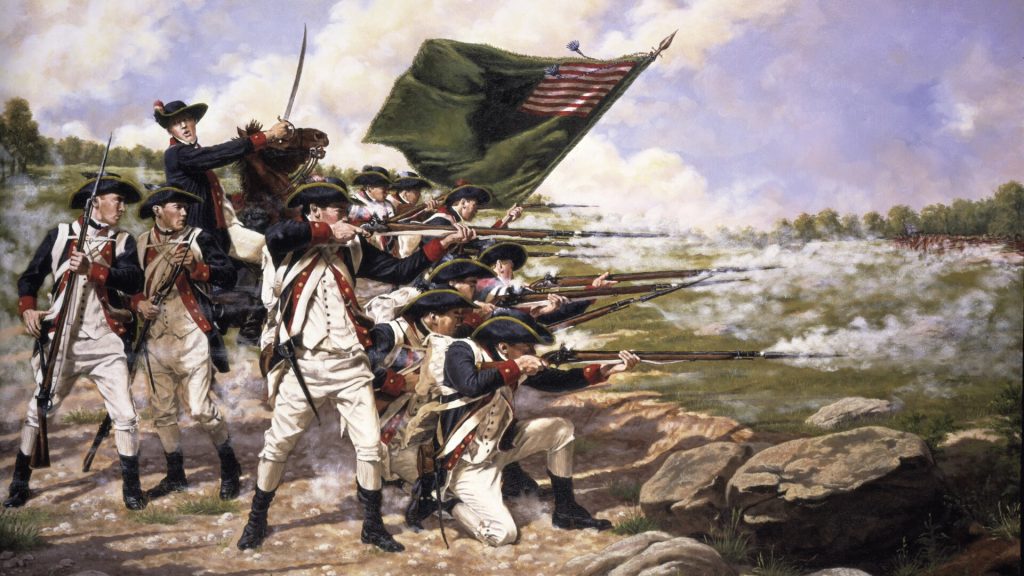
a) John Adams
b) Thomas Jefferson
c) Benjamin Franklin
d) George Washington
Answer 6: What is the name of the appointed commander-in-chief of the Continental Army?
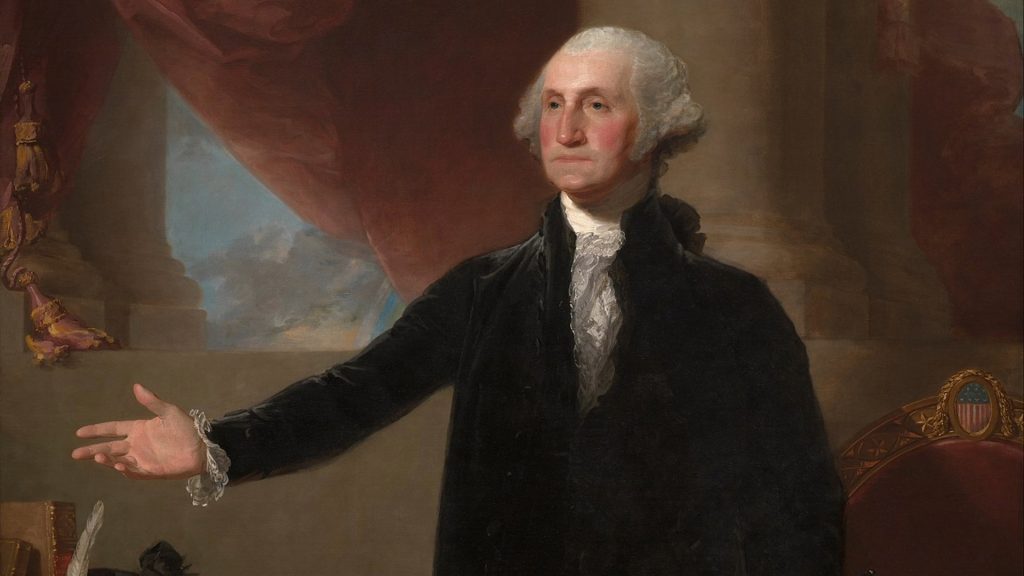
d) George Washington
It was none other than George Washington who was appointed commander in chief of the Continental Army. He played a huge role in winning the war against the British authorities. His sharp wit and tenacious battle strategies were instrumental during the battle.
Question 7: What year was The Treaty of Paris, which concluded the Revolutionary War, signed in?
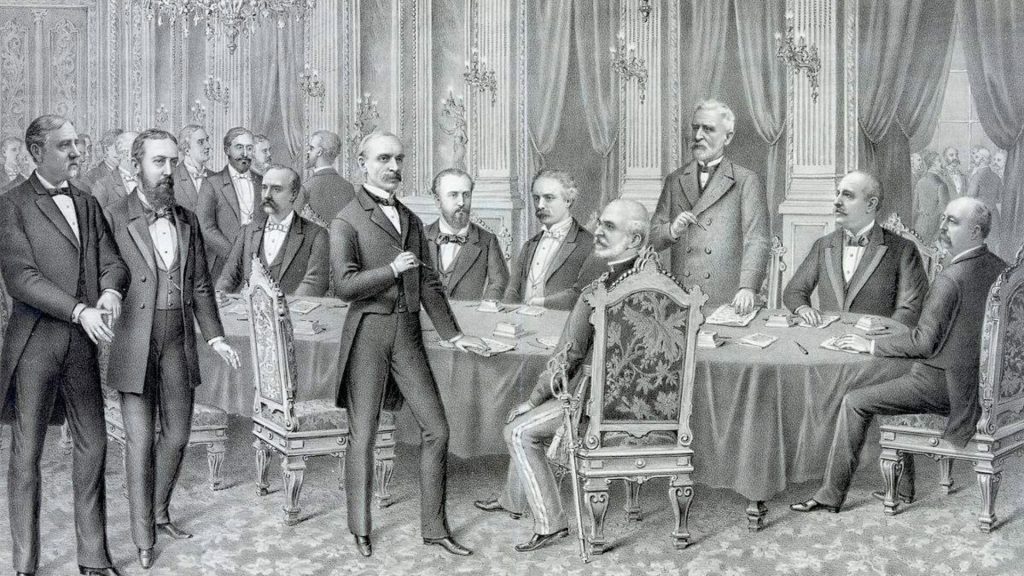
a) 1783
b) 1776
c) 1789
d) 1781
Answer 7: What year was The Treaty of Paris, which concluded the Revolutionary War, signed in?
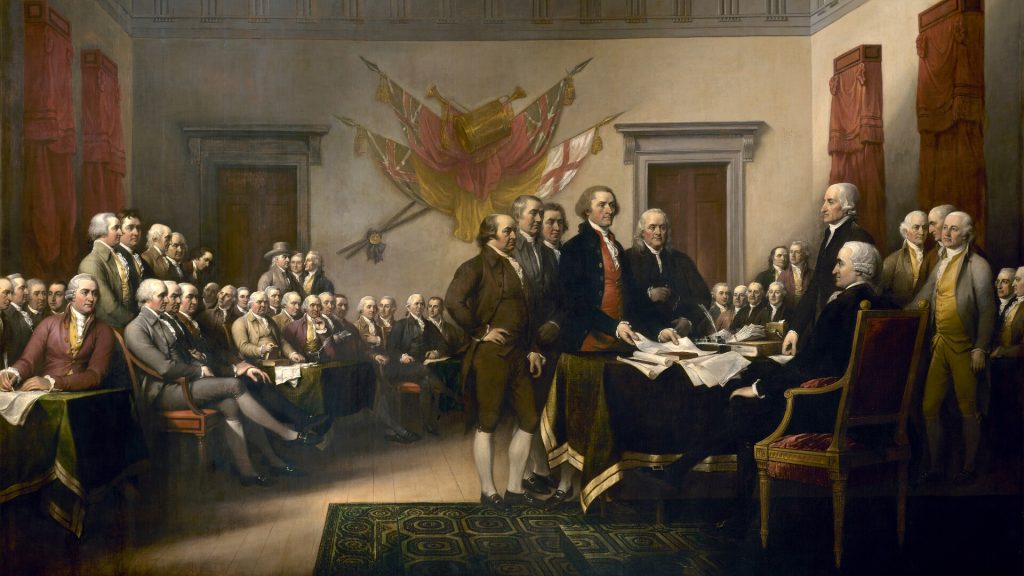
a) 1783
The options are quite tricky on this one and many of you are sure to make mistakes. You may have thought that 1783 might have been the last option but it is in the first one. In this year, the Treaty of Paris occurred which was crucial for marking the boundaries of the newly formed nation.
Question 8: Which of these events was a reaction to the Tea Act imposed by Britain?
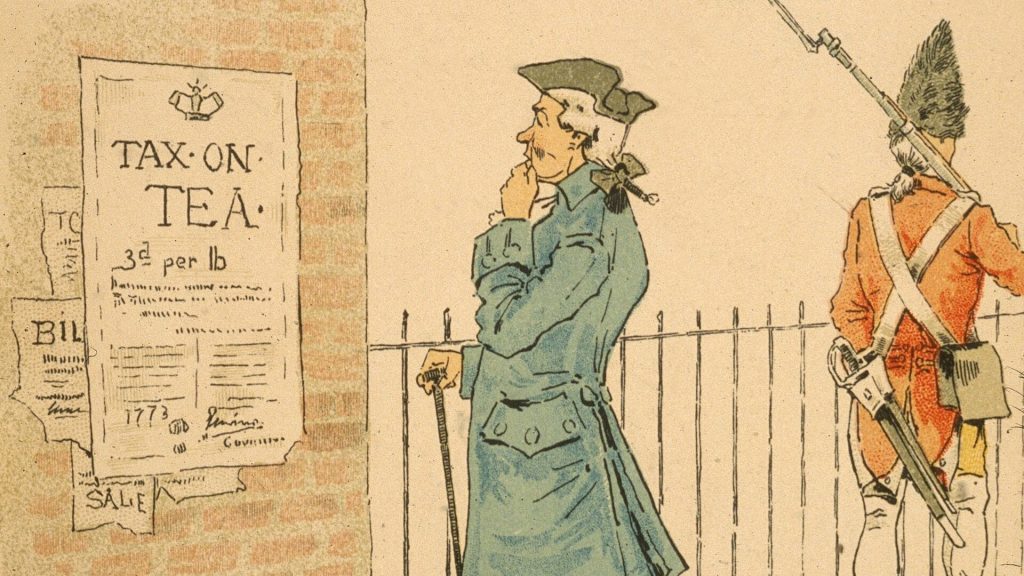
a) The Stamp Act Congress
b) The Battle of Bunker Hill
c) The Boston Tea Party
d) The Boston Massacre
Answer 8: Which of these events was a reaction to the Tea Act imposed by Britain?
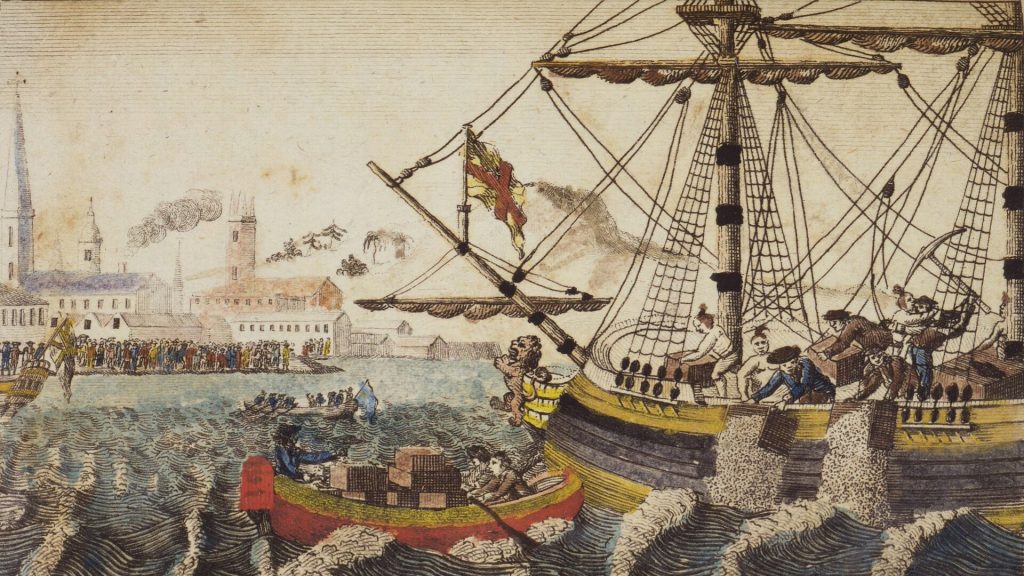
c) The Boston Tea Party
One of the most thoughtful acts by the American colonists was to protest against the authoritarian tax policies as well as the unjustified tea import laws of Great Britain. The mounting pressure led to the start of the famous American Revolutionary War.
Question 9: The name of the first Secretary of the Treasury and a Founding Father was?
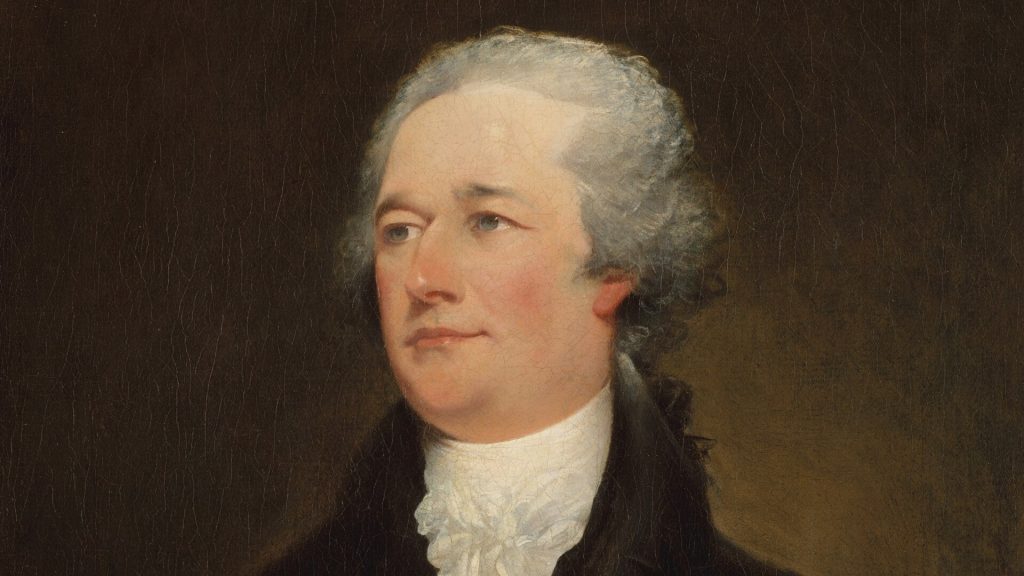
a) Aaron Burr
b) James Madison
c) John Jay
d) Alexander Hamilton
Answer 9: The name of the first Secretary of the Treasury and a Founding Father was?
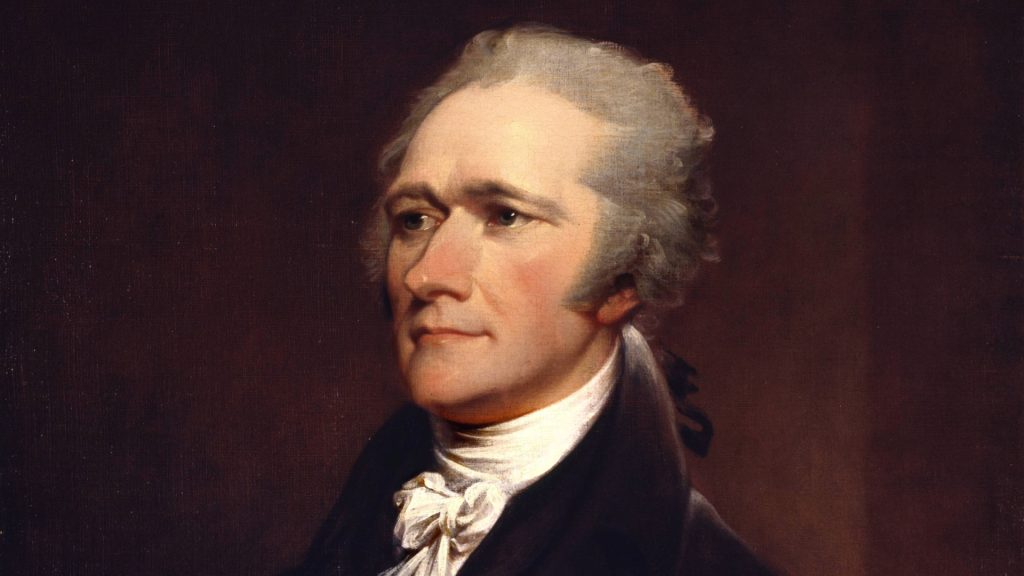
d) Alexander Hamilton
As soon as you utter the word Alexander Hamilton, your lips start to rhyme automatically. There is something harmonious about the name of the first secretary of the treasury. He was appointed by George Washington and quickly established the financial and economic policies that still hold true today.
Question 10: What year was the United States Constitution written in?
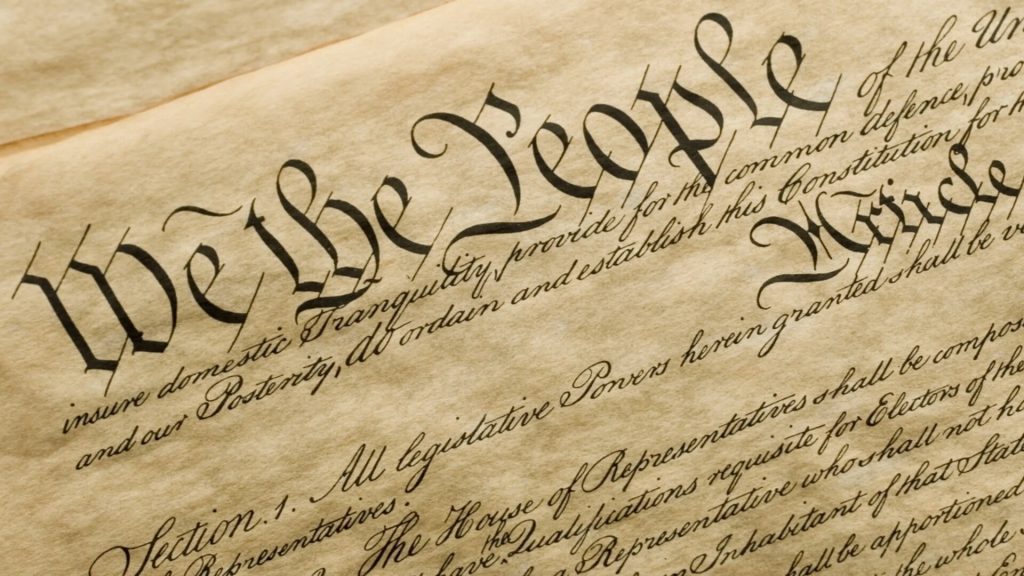
a) 1791
b) 1787
c) 1781
d) 1776
Answer 10: What year was the United States Constitution written?
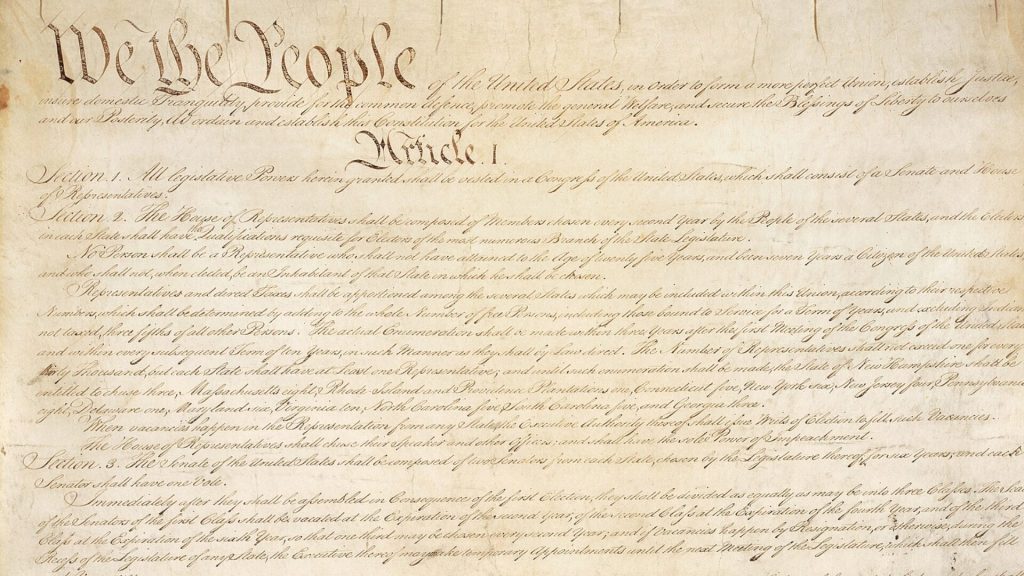
b) 1787
The year is 1787 when the United States constitution was first written which is currently the supreme law of America. It took nearly five months to polish and finalize the version of the constitution.
Question 11: Which American Revolutionary War battle was the last major one?
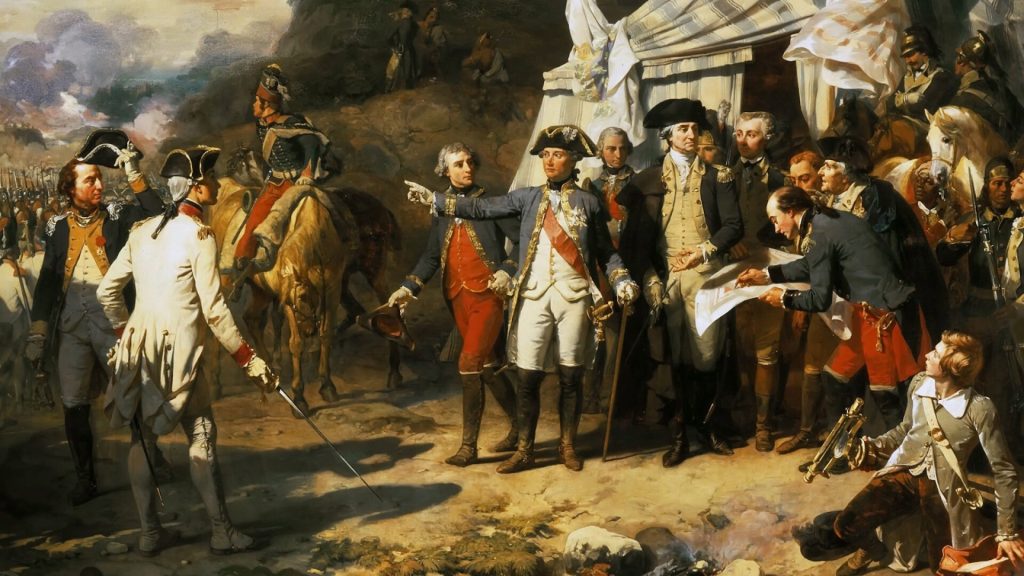
a) The Battle of Lexington
b) The Siege of Boston
c) The Battle of Yorktown
d) The Battle of Saratoga
Answer 11: Which American Revolutionary War battle was the last major one?
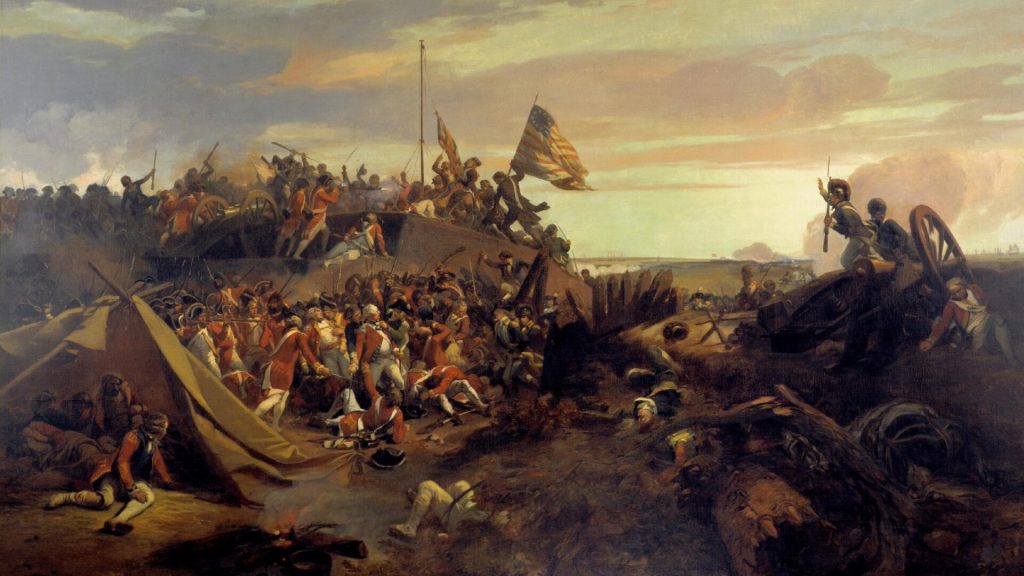
c) The Battle of Yorktown
The Battle of Yorktown is known to be the most influential in ending the American Revolutionary War. The joint forces of American and French colonists against the army of General Cornwallis led to the end of the reign of the British military in 1781.
Question 12: Can you guess who is the father of the constitution?
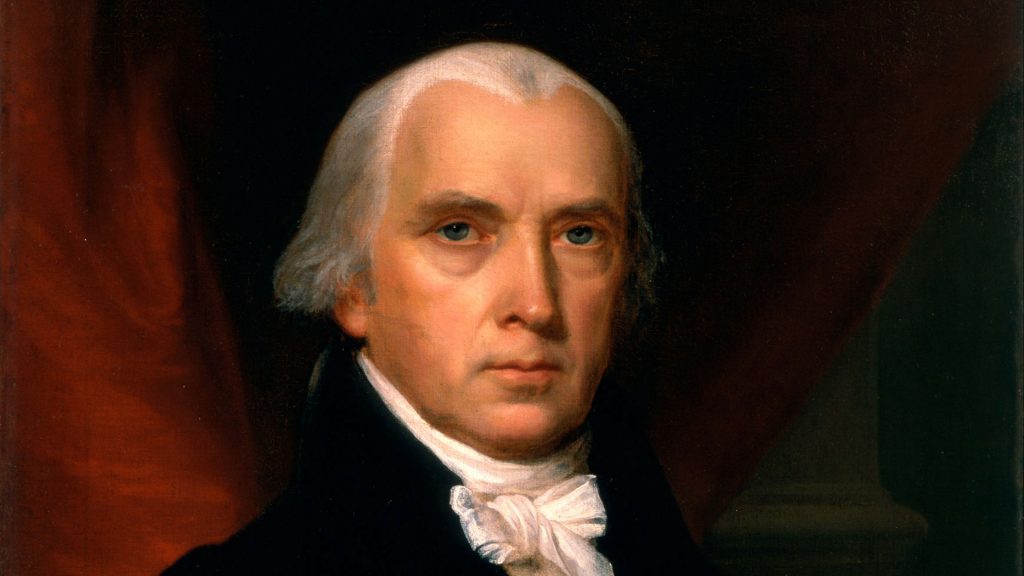
a) Alexander Hamilton
b) Thomas Jefferson
c) James Madison
d) George Washington
Answer 12: Can you guess who is the father of the Constitution?
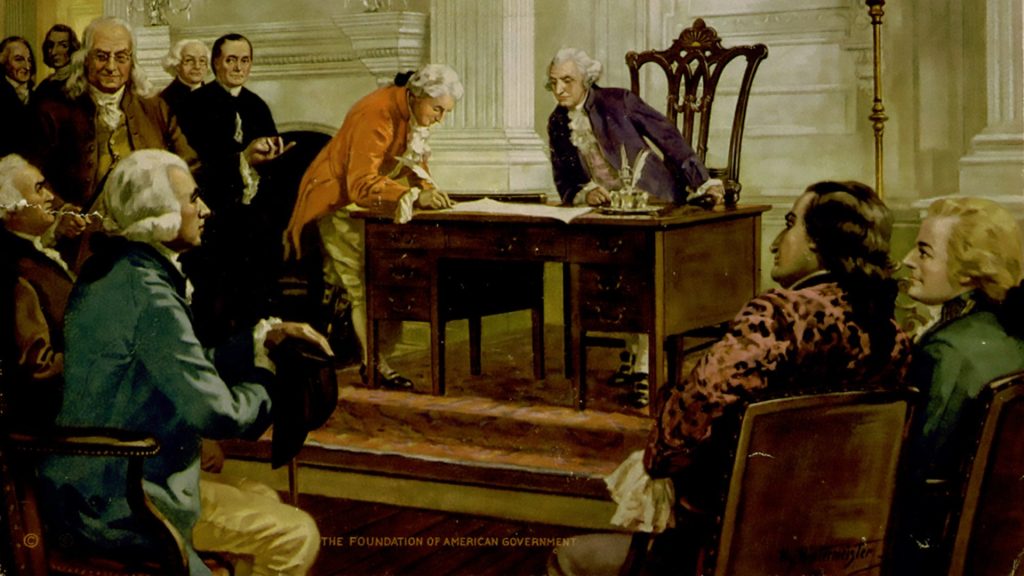
c) James Madison
You might be thinking duh! This one’s quite straightforward and even a child will get it right. Well, the answers are confusing as each of the options seems to be right, don’t they? But the right one is James Madison who was crucial in drafting and promoting the Constitution and also made necessary changes to it.
Question 13: Which is the replacement of The Articles of Confederation, the first governing document of the U.S.?
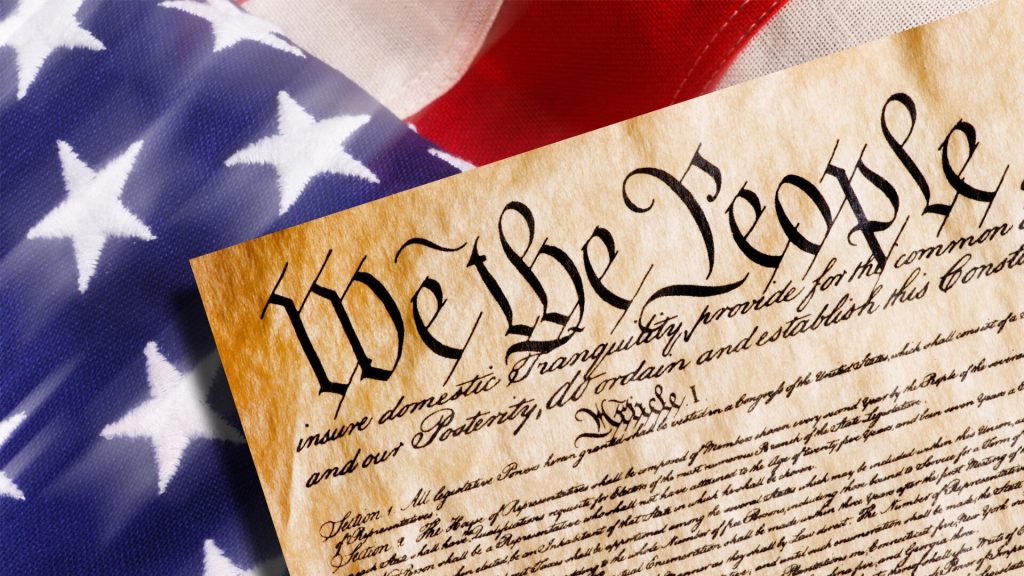
a) The U.S. Constitution
b) The Federalist Papers
c) The Bill of Rights
d) The Declaration of Independence
Answer 13: Which is the replacement of The Articles of Confederation, the first governing document of the U.S.?
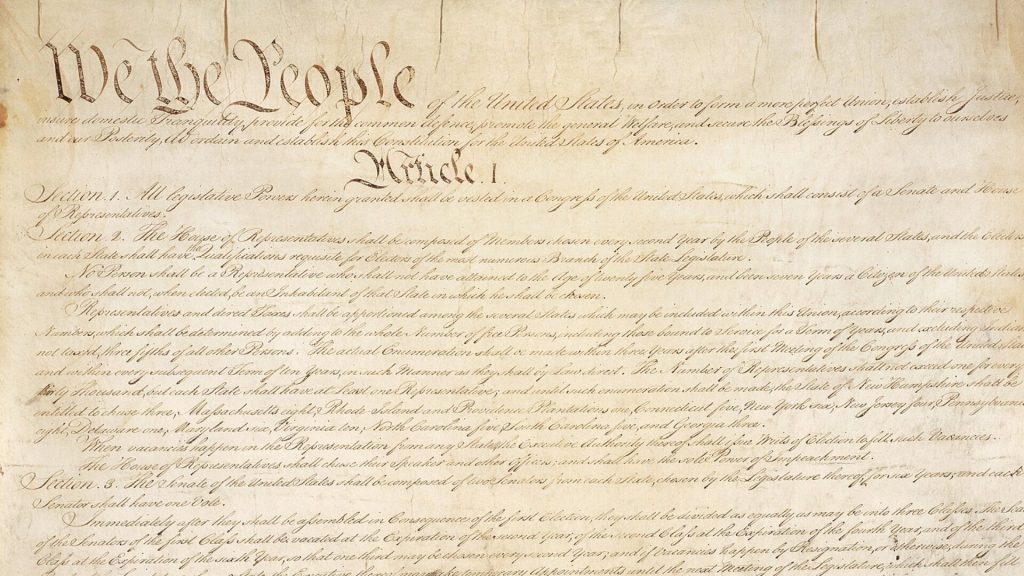
a) The U.S. Constitution
The US Constitution completely changed the game as it pointed out the obvious claws in the previous documents and laid the groundwork for the system that made the US the strongest nation in the world.
Question 14: Which amendment do you think guarantees freedom of speech, religion, and the press?
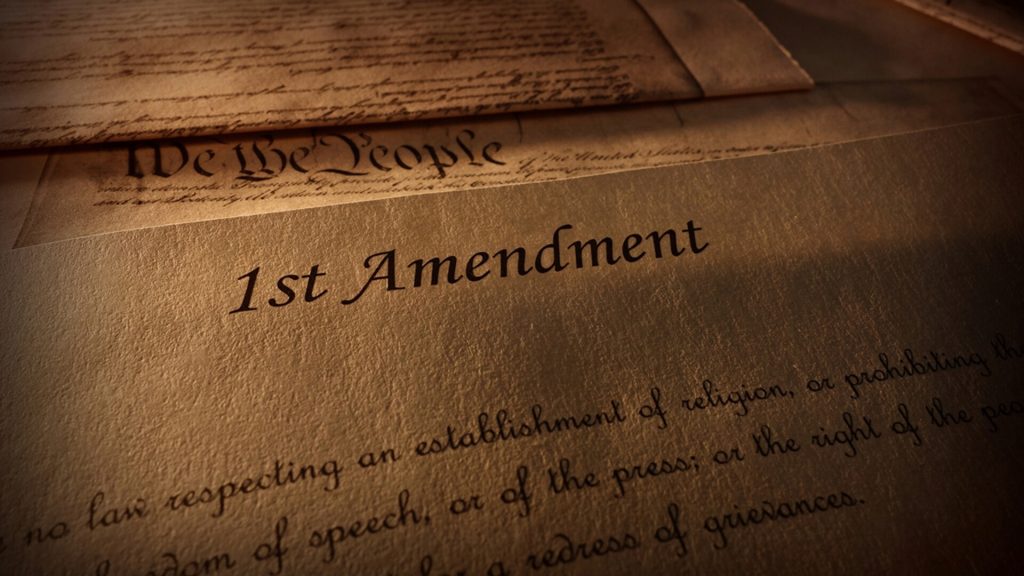
a) Second Amendment
b) First Amendment
c) Tenth Amendment
d) Fifth Amendment
Answer 14: Which amendment do you think guarantees freedom of speech, religion, and the press?
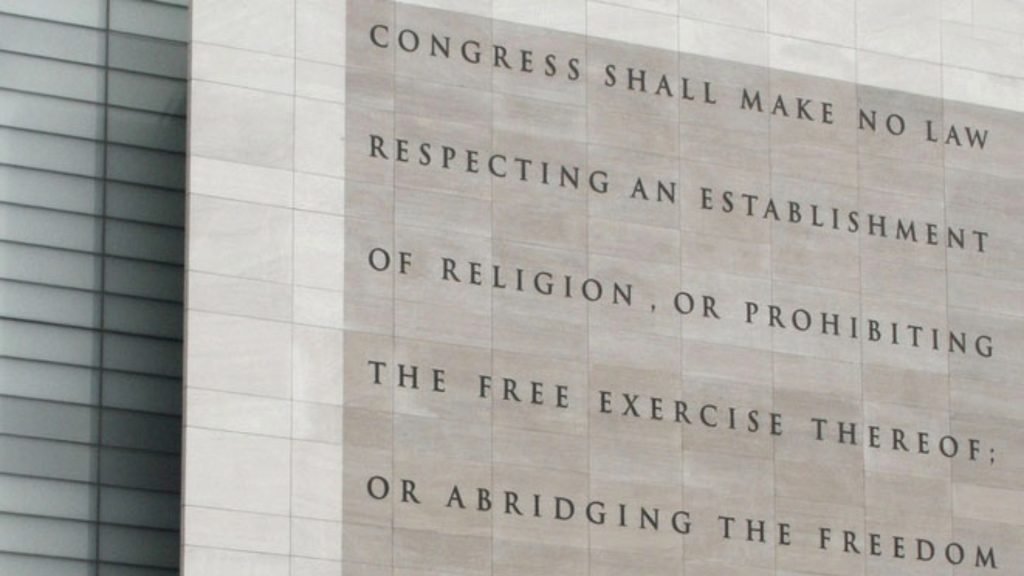
b) First Amendment
Just throw a random guess at this one and chances are you get it correct. It was the First Amendment that allowed people to speak their minds without the fear of the government. This is the amendment that protects the people from government censorship.
Question 15: The ratification of which of these was supported by The Federalist Papers?
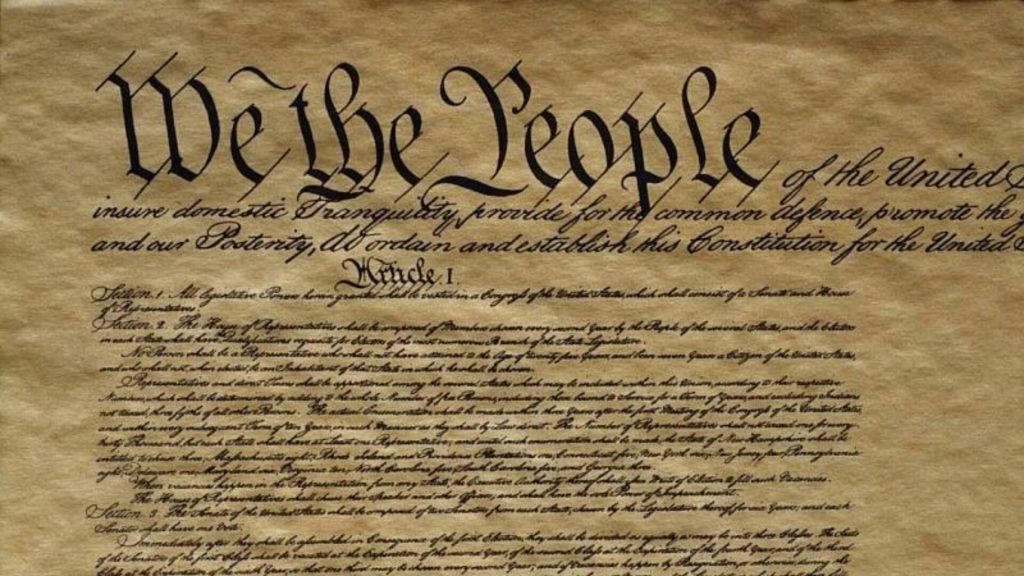
a) The Articles of Confederation
b) The Declaration of Independence
c) The Bill of Rights
d) The U.S. Constitution
Answer 15: The ratification of which of these was supported by The Federalist Papers?
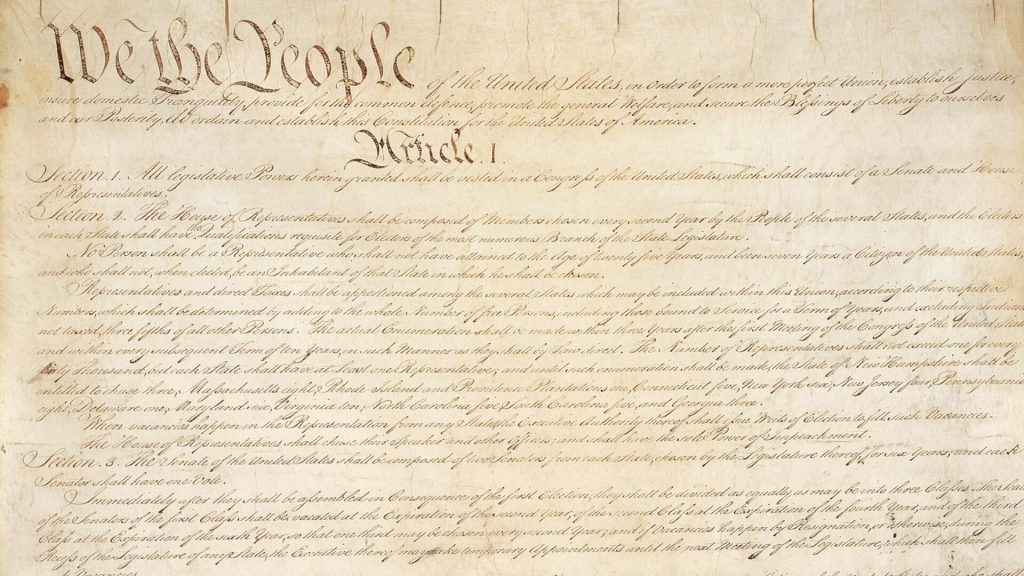
d) The U.S. Constitution
These are a series of papers mainly intended to persuade people in the ratification of the U.S. Constitution. It was written by Alexander Hamilton, John Jay, and James Madison. They used the pseudonym “Publius”. Through the documents, they exclaimed the need for a solid federal government.
Question 16: Who said the bone-chilling words, “Give me liberty, or give me death.”?
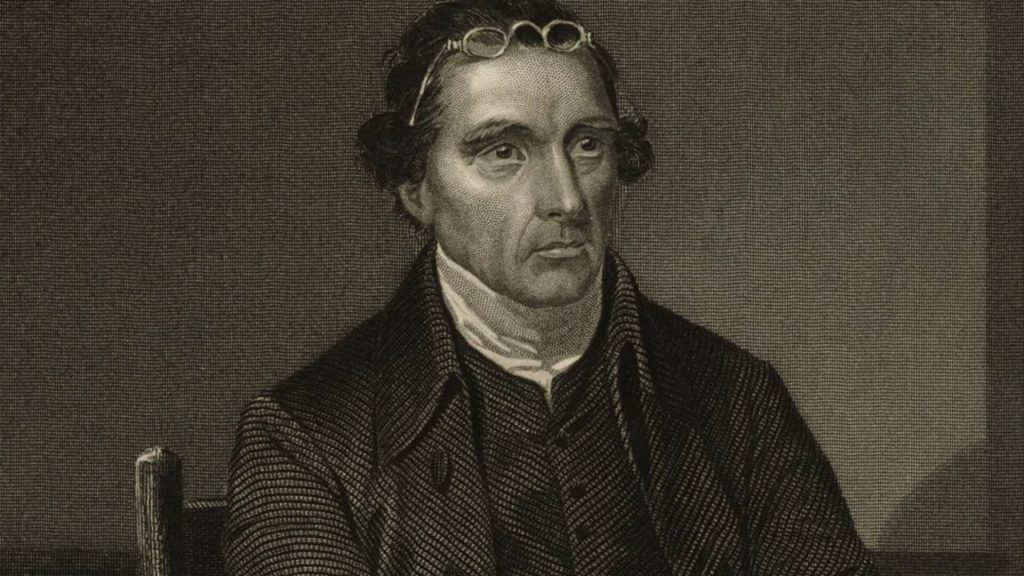
a) Benjamin Franklin
b) John Hancock
c) Patrick Henry
d) Paul Revere
Answer 16: Who said the bone-chilling words, “Give me liberty, or give me death.”?
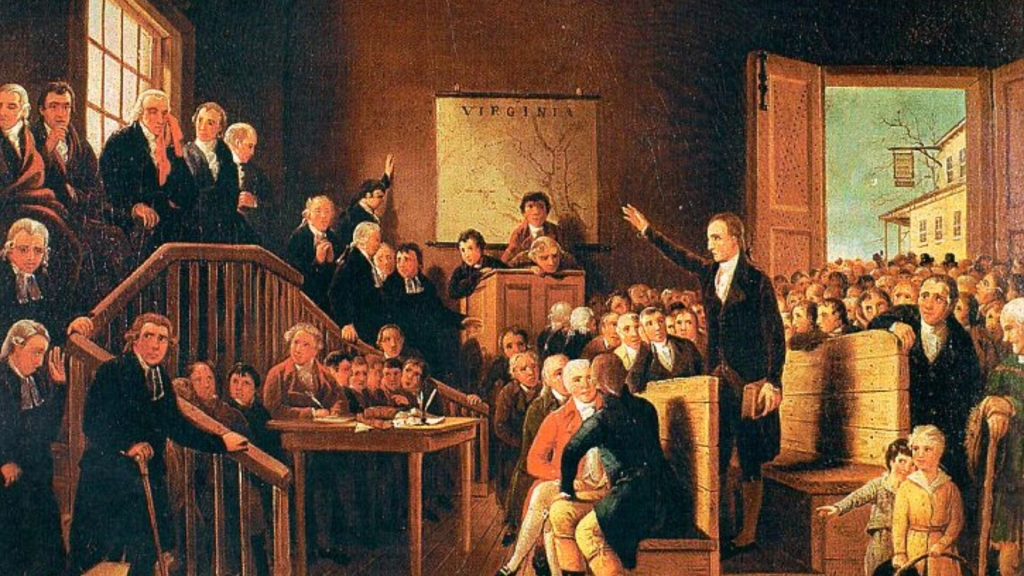
c) Patrick Henry
Even writing the words giving me chills. It was Patrick Henry who said the famous words that echoed in the hearts of every American back in the day. His words became the slogan for independence.
Question 17: Who wrote the “Common Sense,” a pamphlet encouraging independence from Britain?
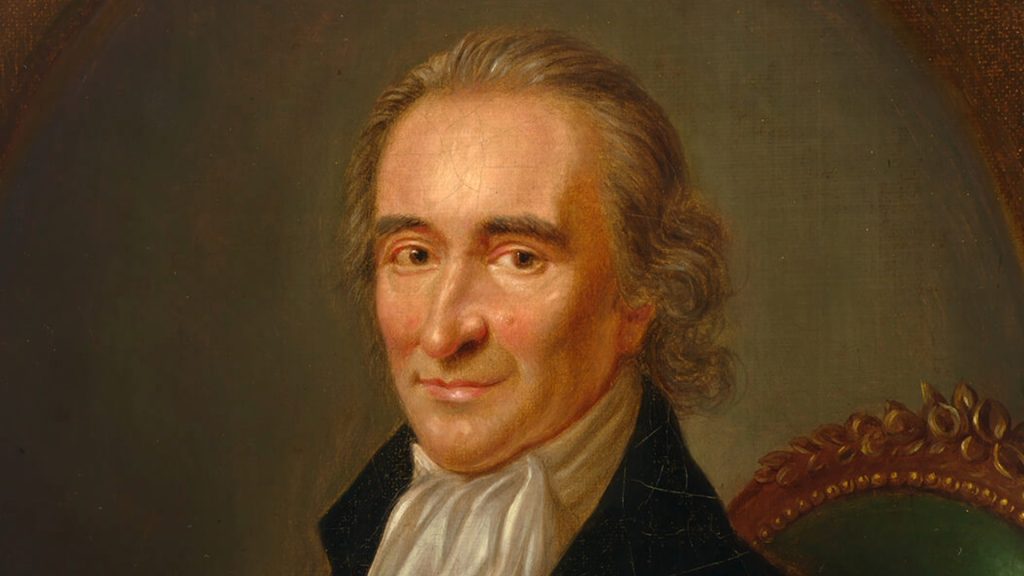
a) Benjamin Franklin
b) George Washington
c) John Adams
d) Thomas Paine
Answer 17: Who wrote the “Common Sense,” a pamphlet encouraging independence from Britain?
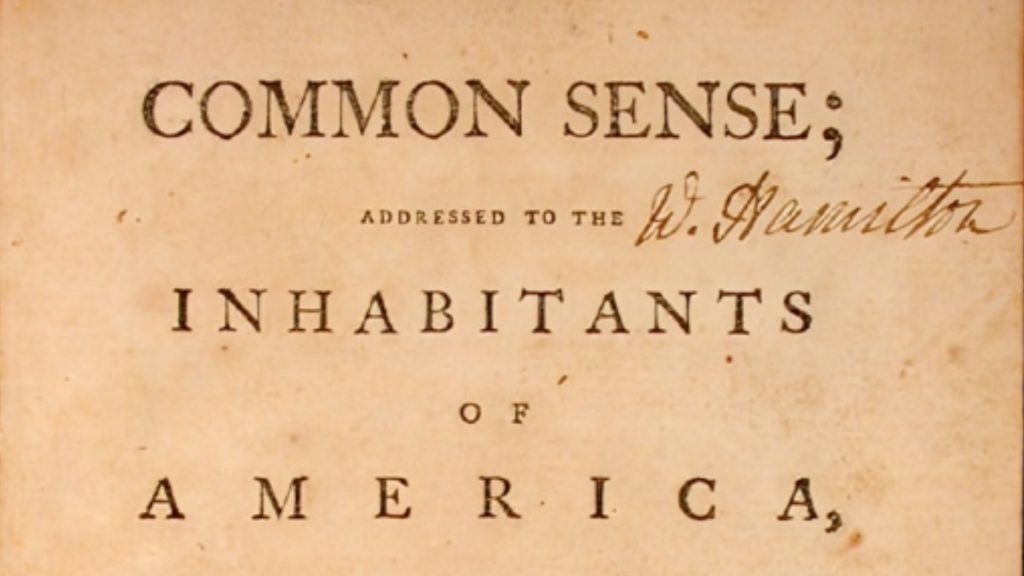
d) Thomas Paine
During the American Revolution, many poets released astounding works expressing the desire to free the people from the rule of the British government. But not all of them were readable by the masses. It was the Common sense, written by Thomas Paine that was easily accessible by the people and they could connect with the message.
Question 18: What role do you think Marquis de Lafayette performed in the American Revolution?
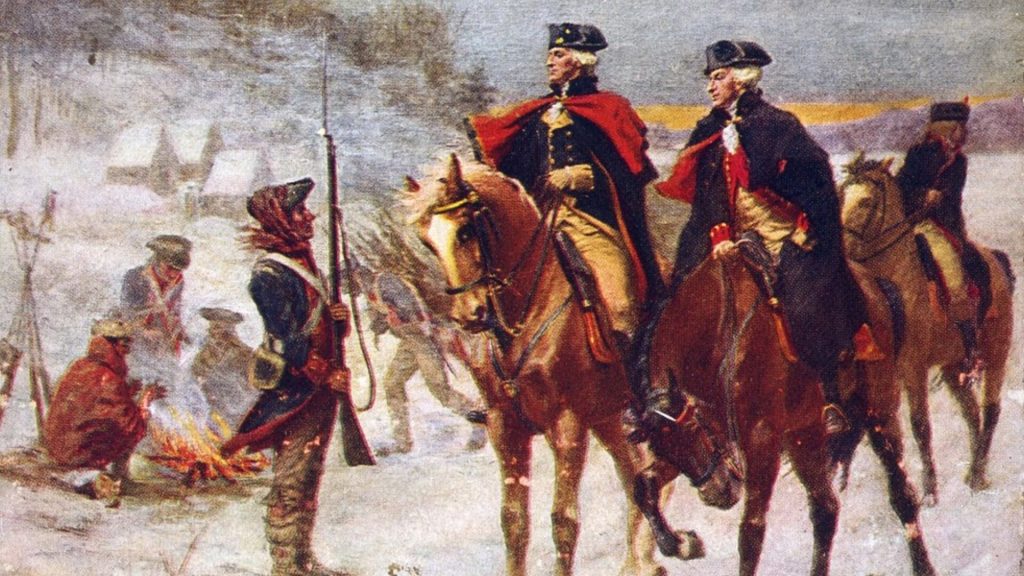
a) American Spy
b) French Military Officer
c) American Diplomat
d) British General
Answer 18: What role do you think Marquis de Lafayette performed in the American Revolution?
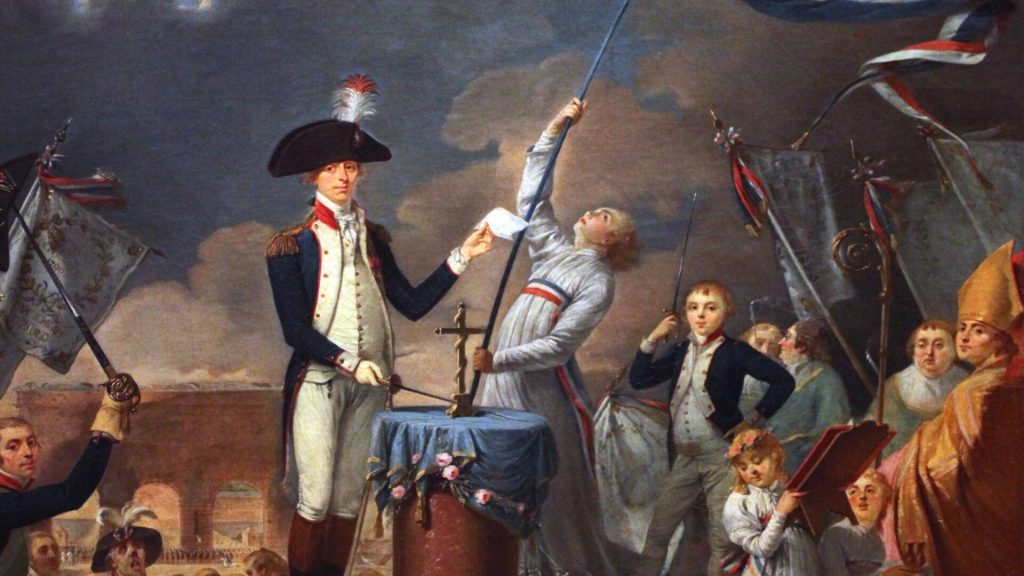
b) French Military Officer
Marquis de Lafayette played a crucial role as the French military officer during the Continental War. His leadership was key in the battle of Yorktown.
Question 19: George Washington’s renowned Delaware River crossing occurred when?
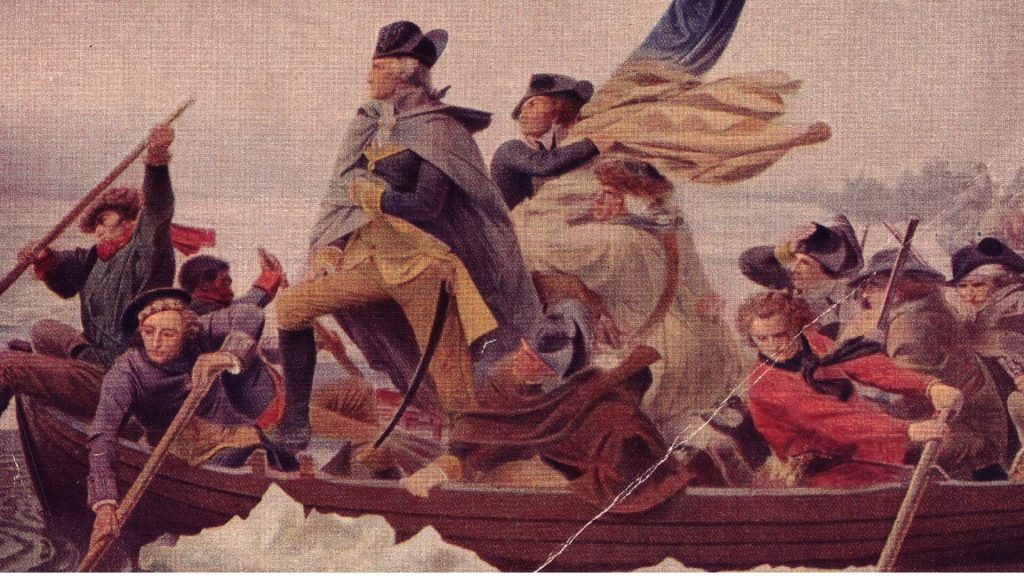
a) During the Siege of Boston
b) At the start of the Battles of Lexington and Concord
c) Before the Battle of Trenton
d) After the Battle of Yorktown
Answer 19: George Washington’s renowned Delaware River crossing occurred when?
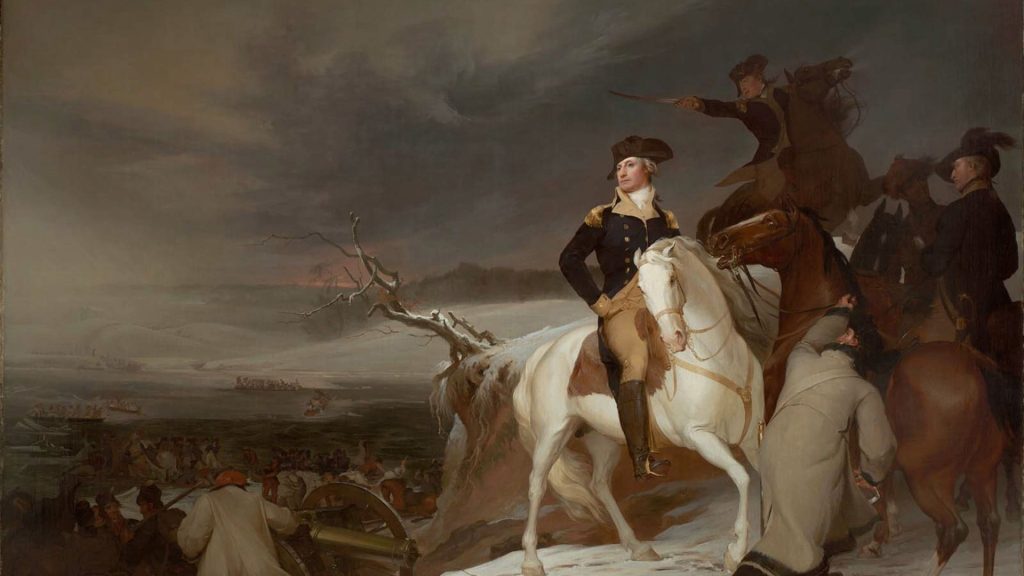
c) Before the Battle of Trenton
The image of George Washington standing proudly near the front rear of the boat crossing the Delaware River has been etched deep into our brains. But did you know when he did that? It was just before the battle of Trenton.
Question 20: Which of these documents start with the moving phrase “We the People”?
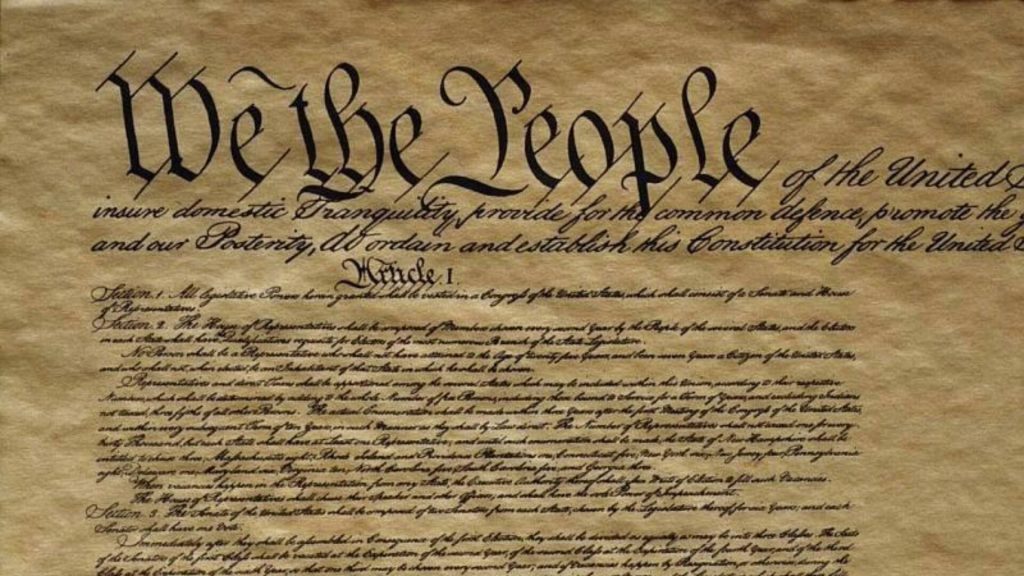
a) The U.S. Constitution
b) The Articles of Confederation
c) The Declaration of Independence
d) The Bill of Rights
Answer 20: Which of these documents start with the moving phrase “We the People”?
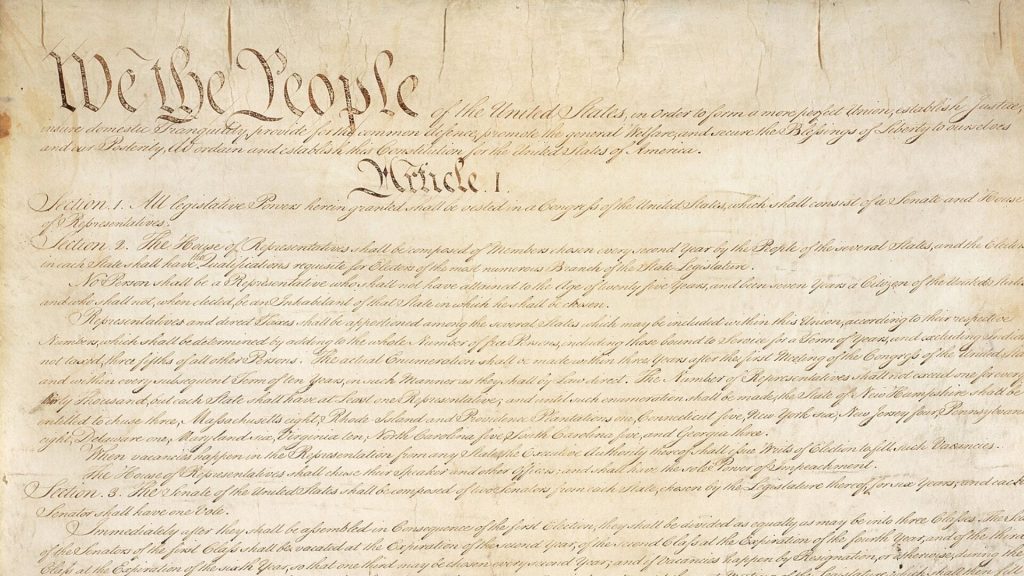
a) The U.S. Constitution
The phase which signifies how each people of America are connected with each other is mentioned at the beginning of the U.S. Constitution. It indicates the notion of democracy and how everyone has equal rights.
Question 21: Which colony gave its delegates the order to cast their votes in favour of independence from Great Britain first?
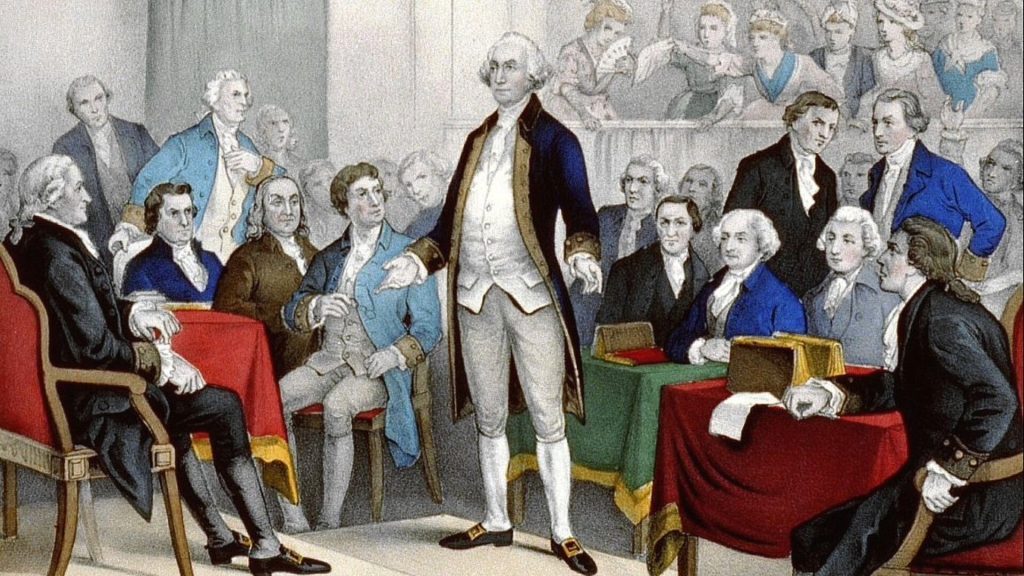
a) New York
b) Pennsylvania
c) Massachusetts
d) Virginia
Answer 21: Which colony gave its delegates the order to cast their votes in favour of independence from Great Britain first?
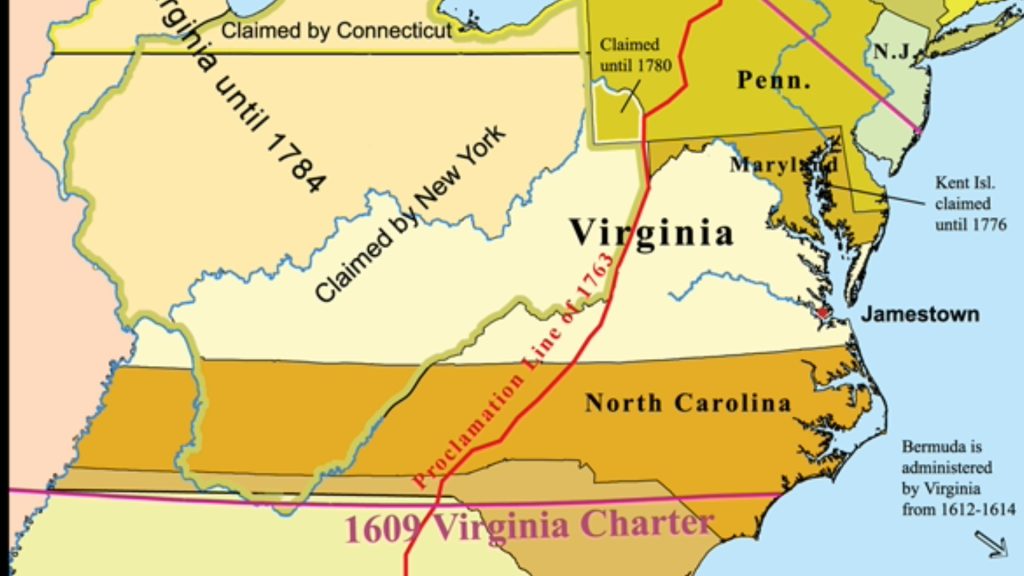
d) Virginia
During the war, it was necessary for all members to be in favour of securing freedom from the dark clutches of the rule of Great Britain. It was the colony of Virginia that instructed its delegates to cast their votes which propelled more colonies to do the same.
Question 22: In which year did the Boston massacre happen?
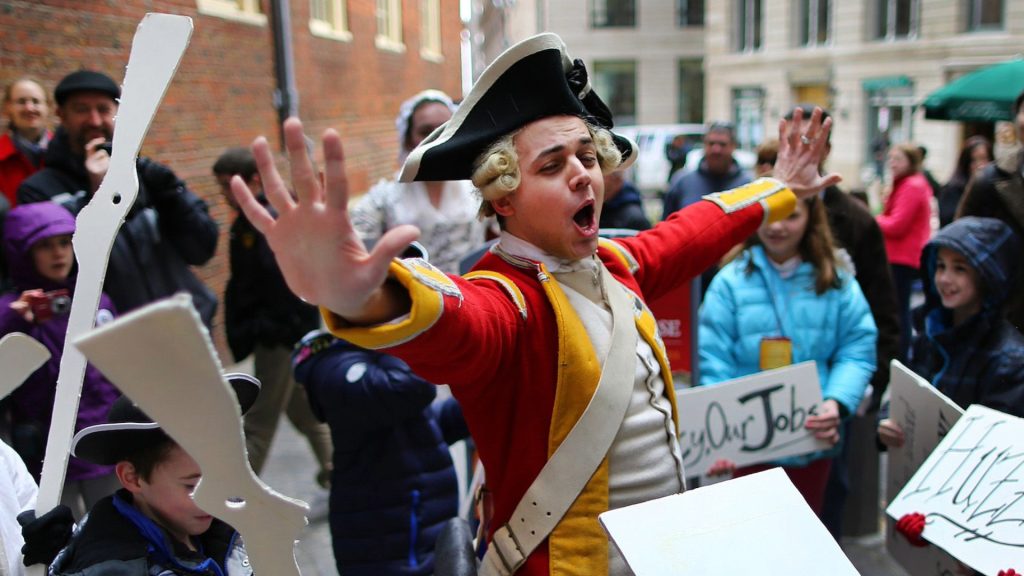
a) 1776
b) 1775
c) 1773
d) 1770
Answer 22: In which year did the Boston massacre happen?
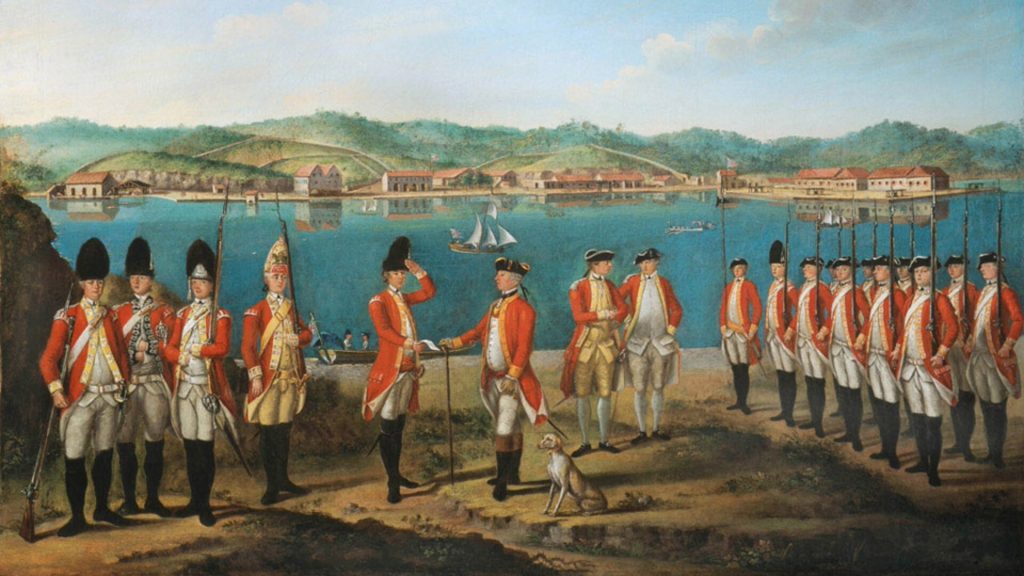
d) 1770
This one might be the one answer that you all know. This is mainly because morbid occurrences leave a deep impact on our brains and the year 1770 will forever revolve in our minds when the Boston massacre happened.
Question 23: The Declaration of Independence was first signed by whom?
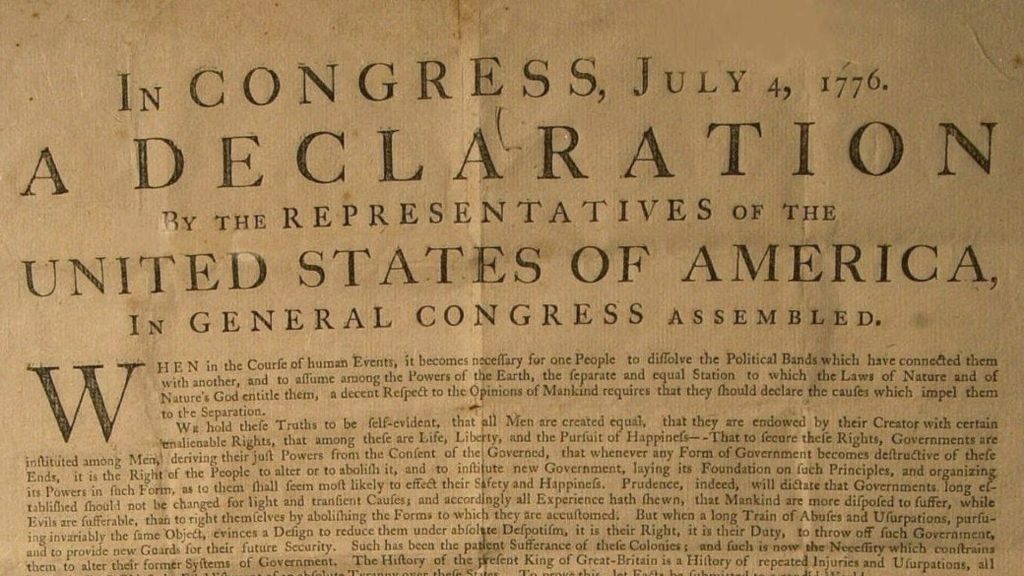
a) Thomas Jefferson
b) George Washington
c) Benjamin Franklin
d) John Hancock
Answer 23: The Declaration of Independence was first signed by whom?
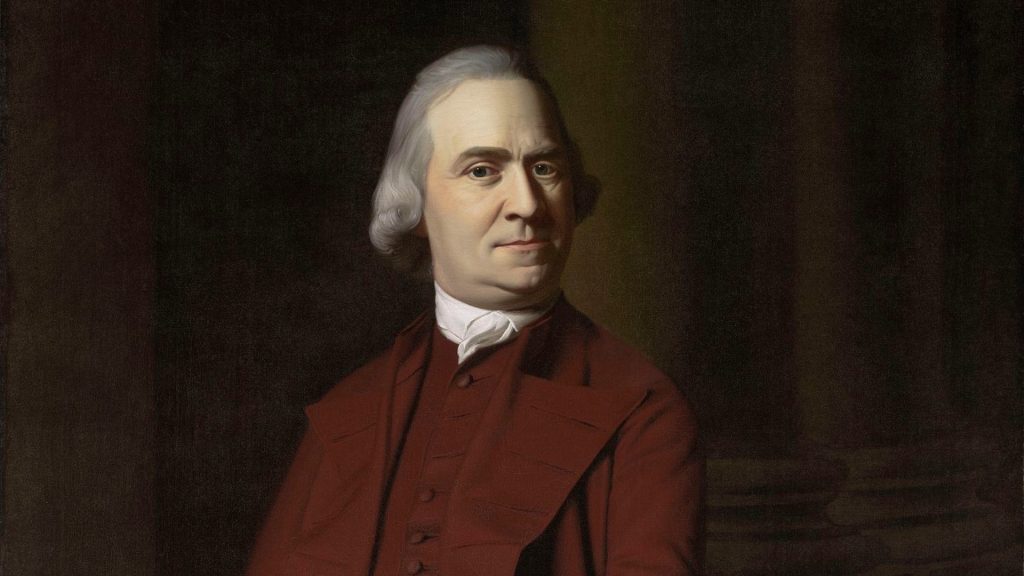
d) John Hancock
A relatively less talked about name, John Hancock was the person who first signed the Declaration of Independence. His clear signature showcased his passionate commitment towards his country and since has been hailed as legendary.
Question 24: What was Valley Forge used as?
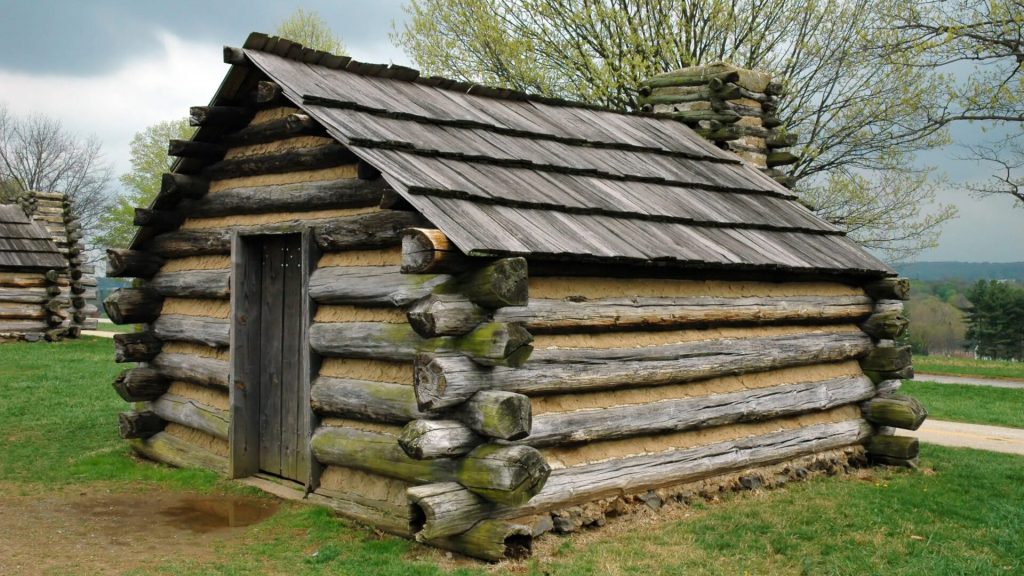
a) The winter camp of the Continental Army
b) The signing of the Treaty of Paris
c) A major battle
d) The Continental Congress
Answer 24: What was Valley Forge used as?
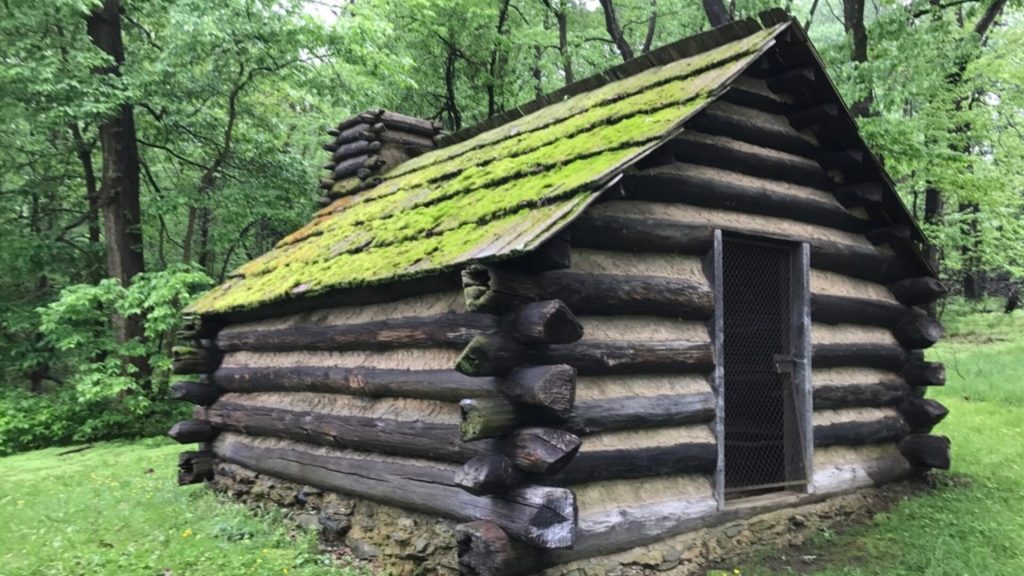
a) The winter camp of the Continental Army
During the rough winters in 1777-1778, it was extremely hard for the Continental Army to train under the circumstances. It was further hampered by the lack of supplies. The Valley Forge appeared as a beacon of hope where the army gained strength and tactical abilities.
Question 25: The Constitution’s first ten amendments are referred to as:
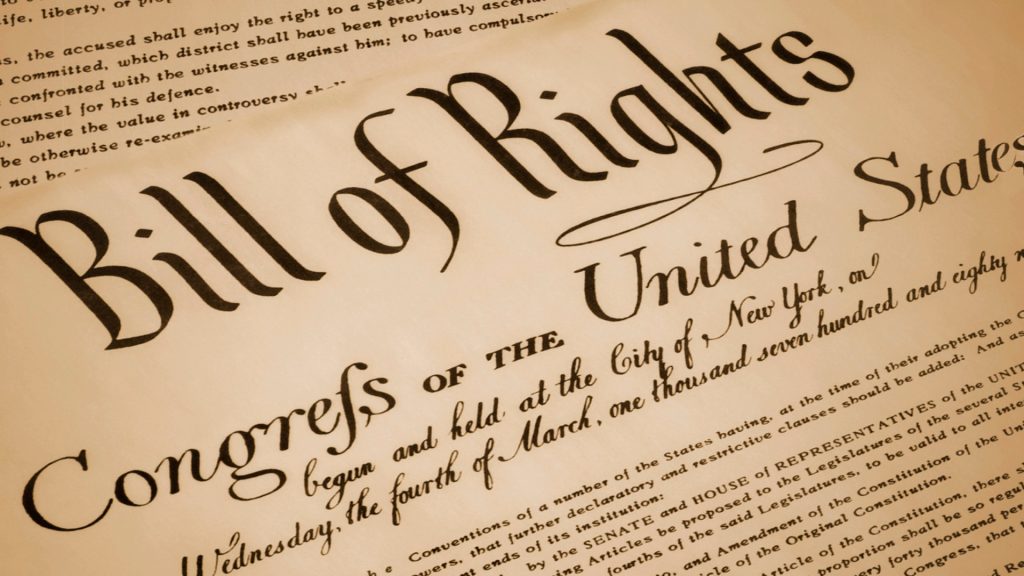
a) The Preamble
b) The Federalist Papers
c) The Bill of Rights
d) The Federalist Papers
Answer 25: The Constitution’s first ten amendments are referred to as:
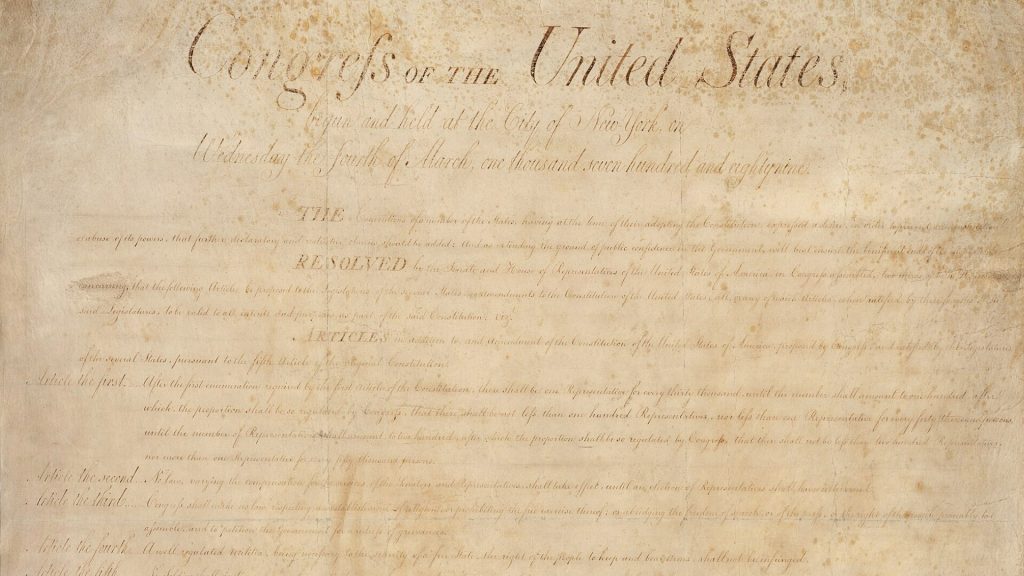
c) The Bill of Rights
Last but not the least is quite a straightforward one. Did you get it right? If not then know the significance behind the answer. The first 10 amendments dictated the rights of the American citizens along with their security and freedom and therefore was known as the bill of rights.
How Did You Do?
Did you get all of these right or did you make a blunder? Let us know in the comment section. The quiz is prepared to pour information about the most significant period when America truly started to flourish.
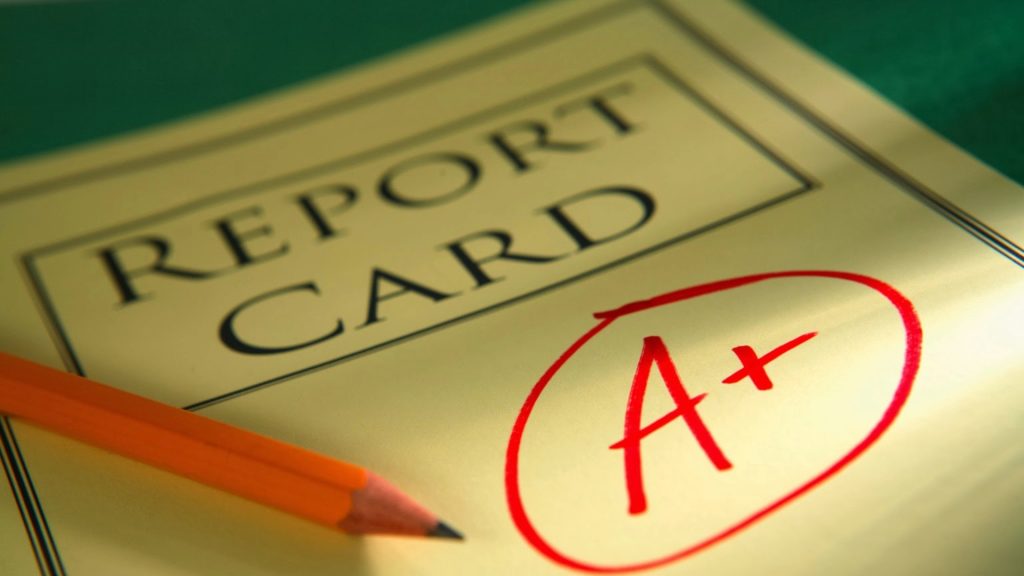
With the newfound information, you can easily brag with your peers and blow their minds with some insane historical facts. See who among you knows the most about history by tagging your friends or coworkers!

